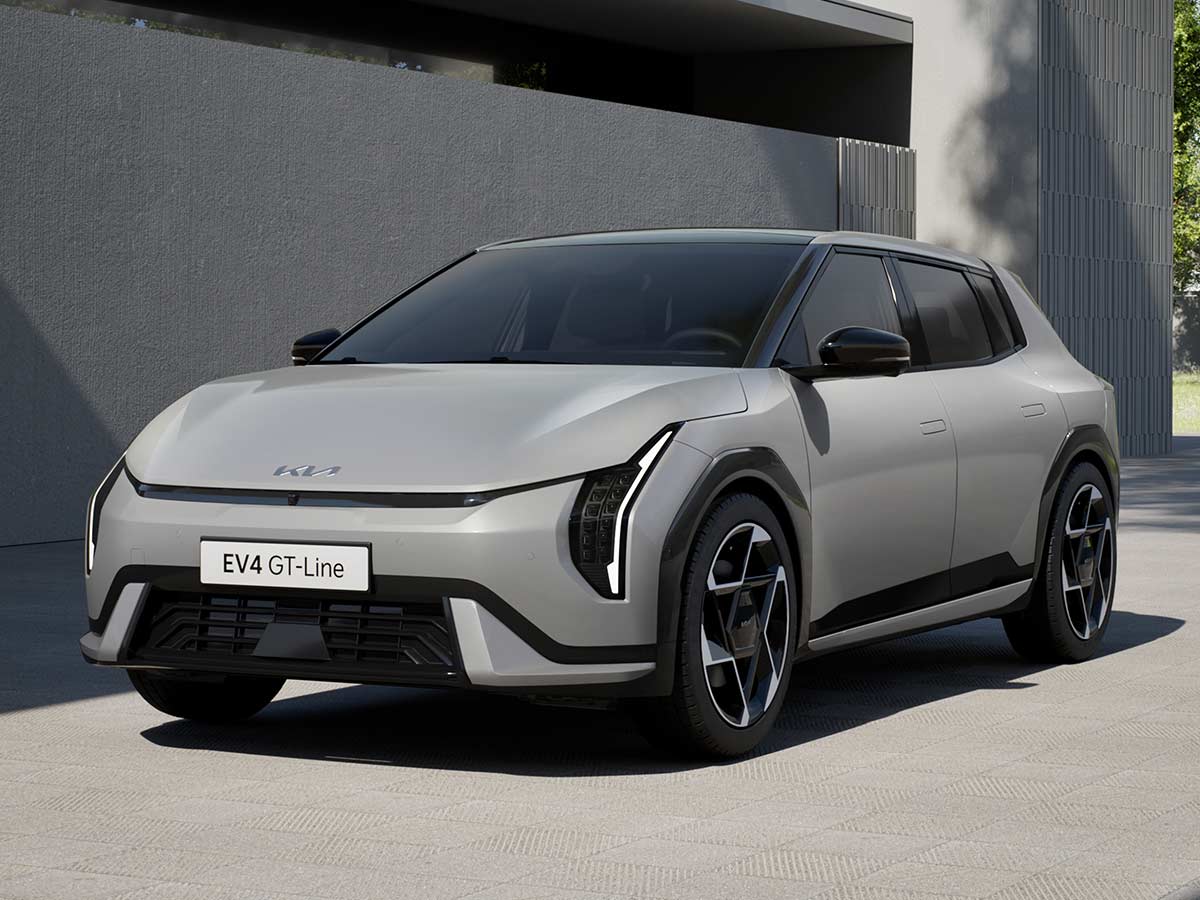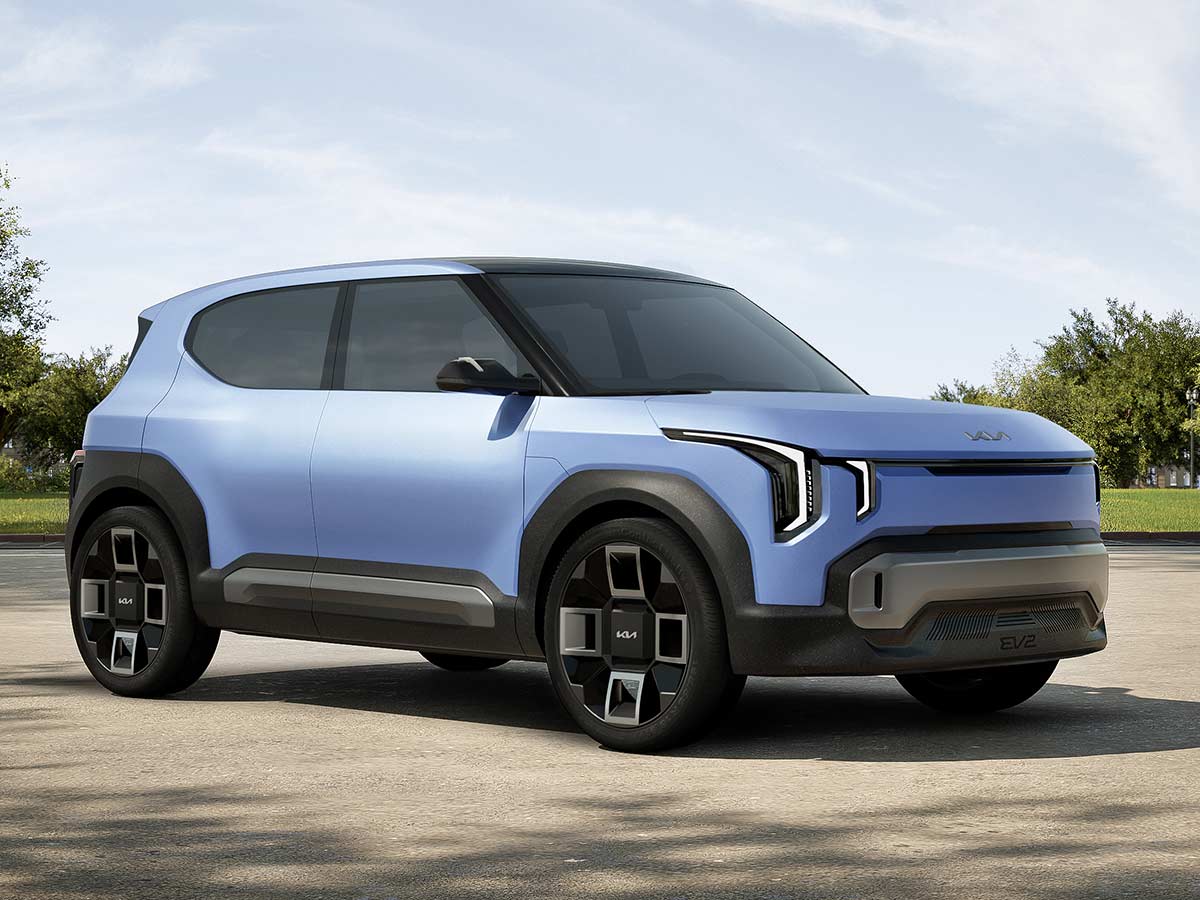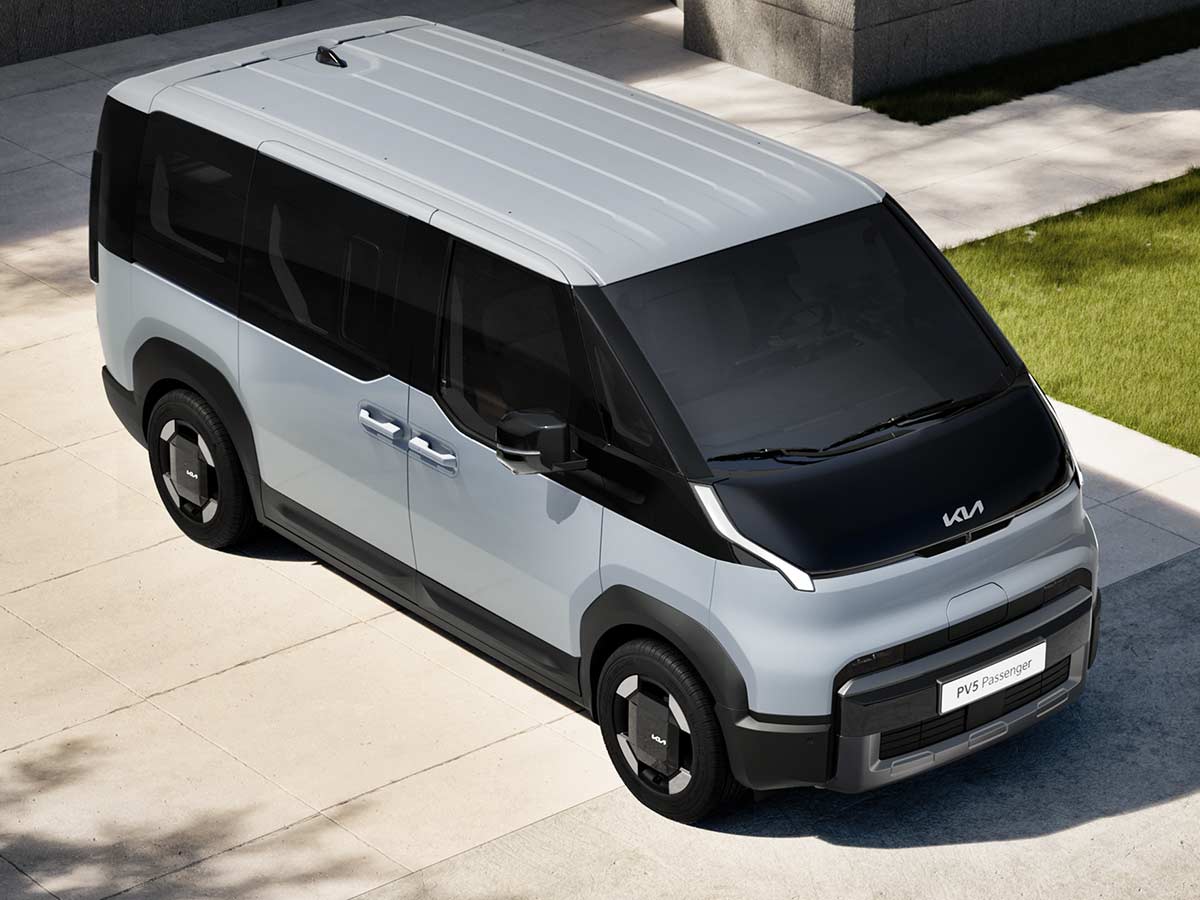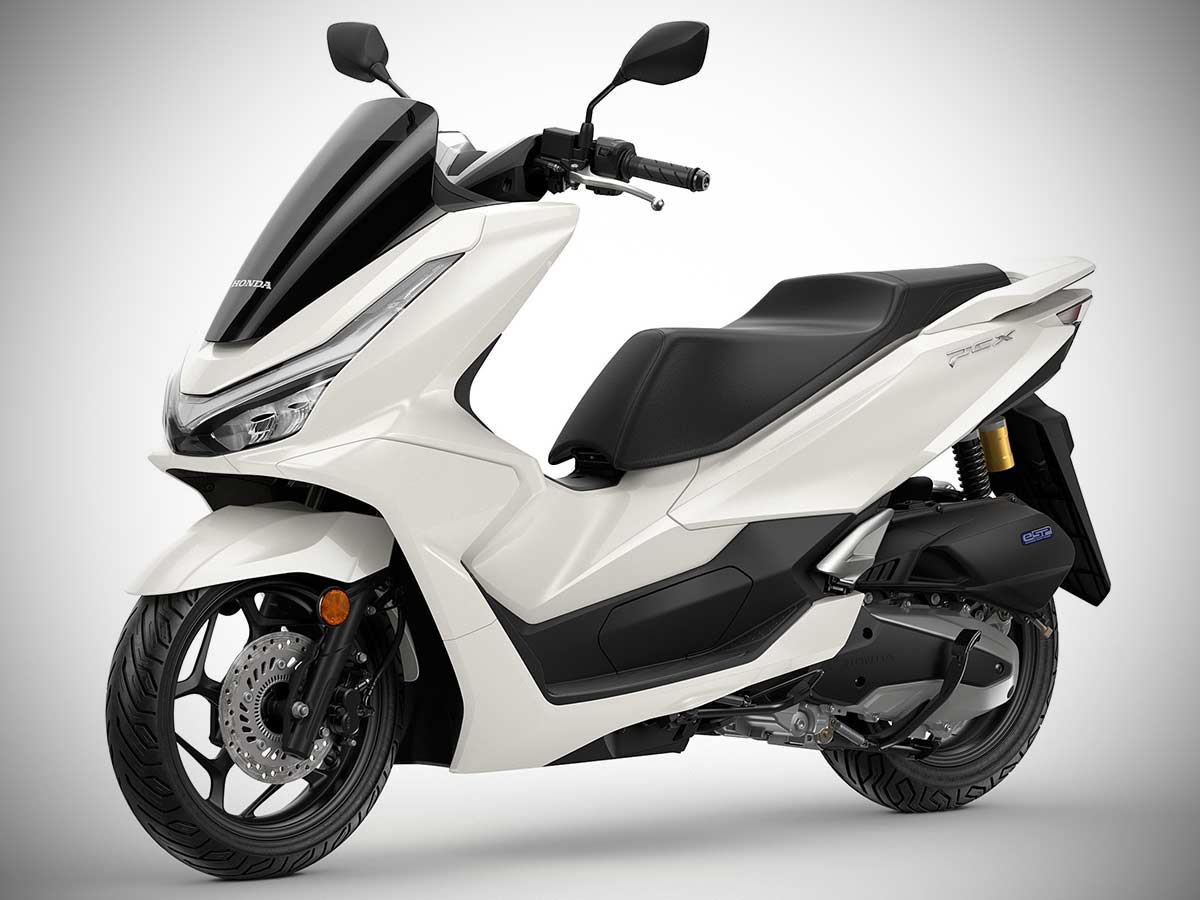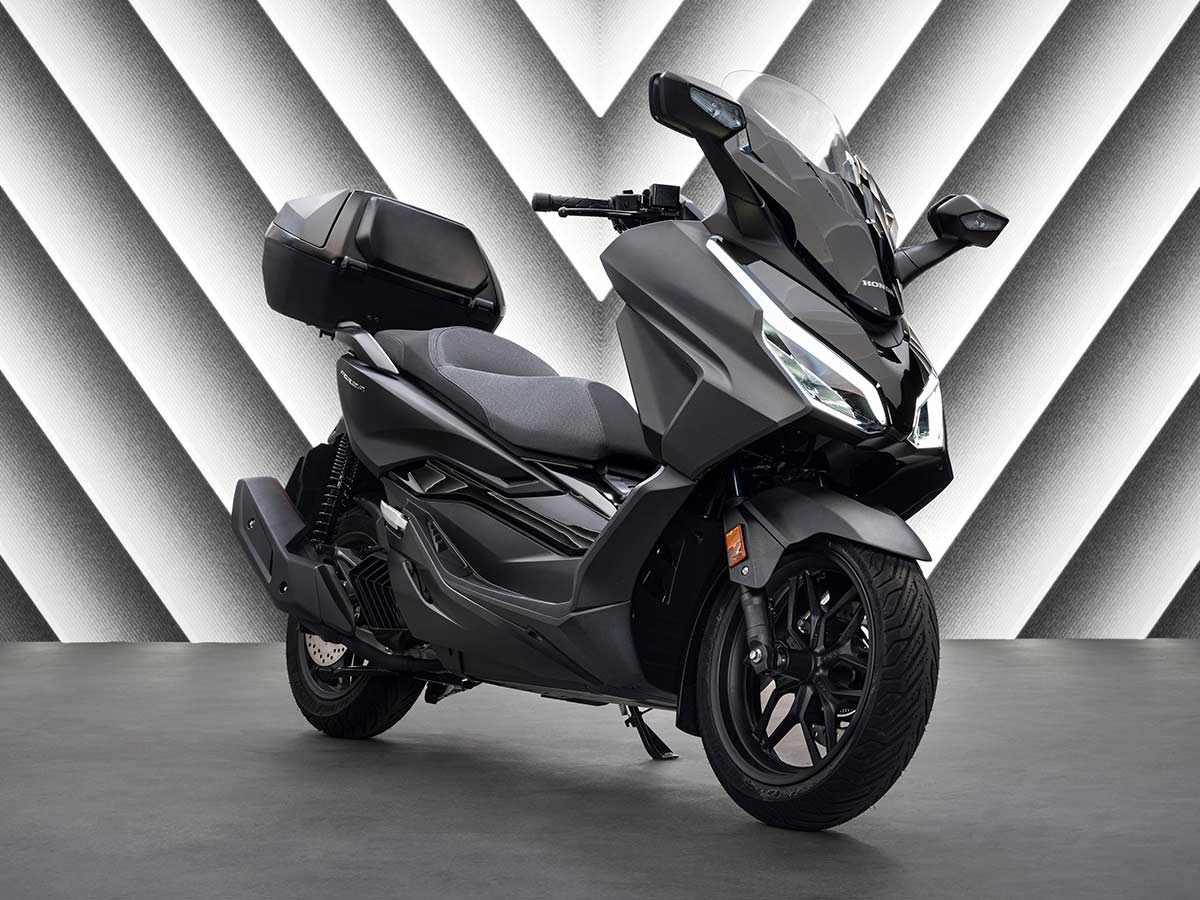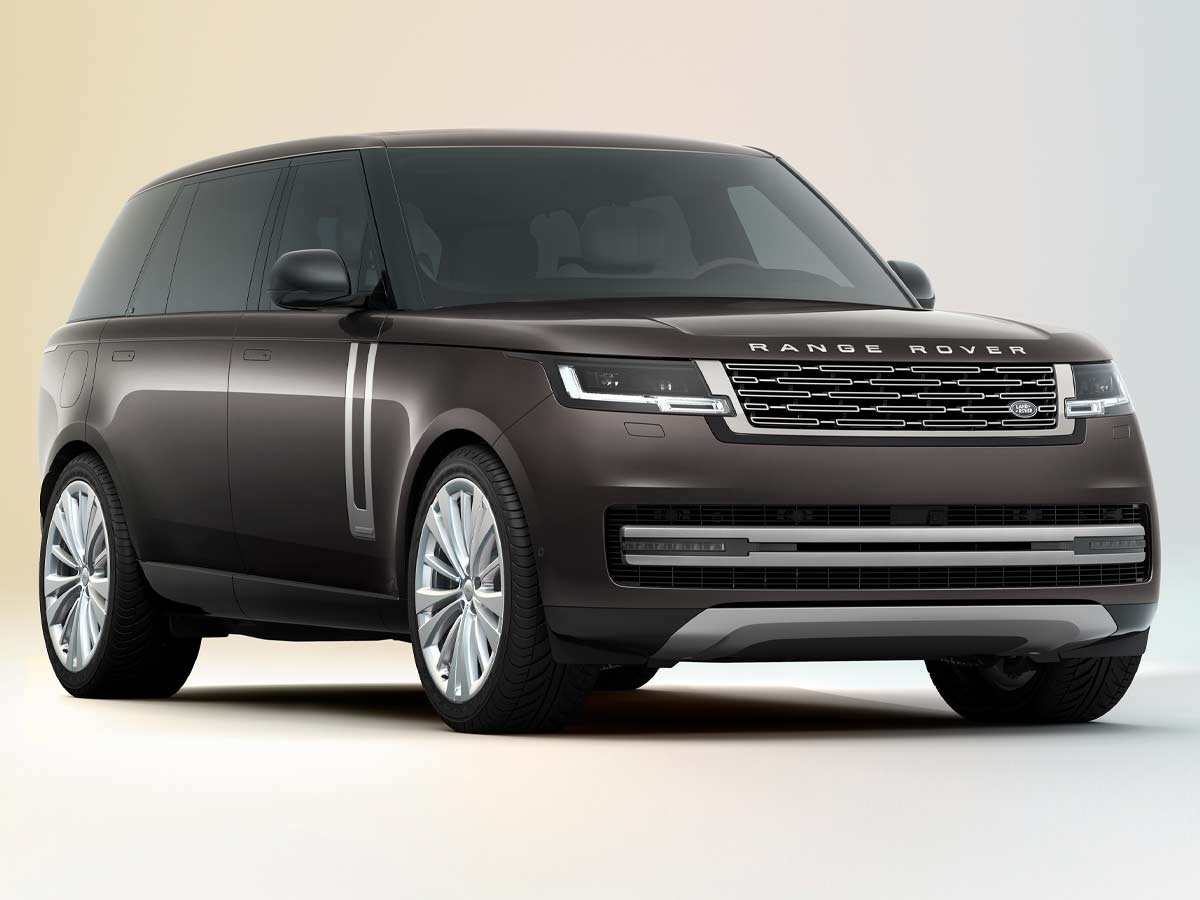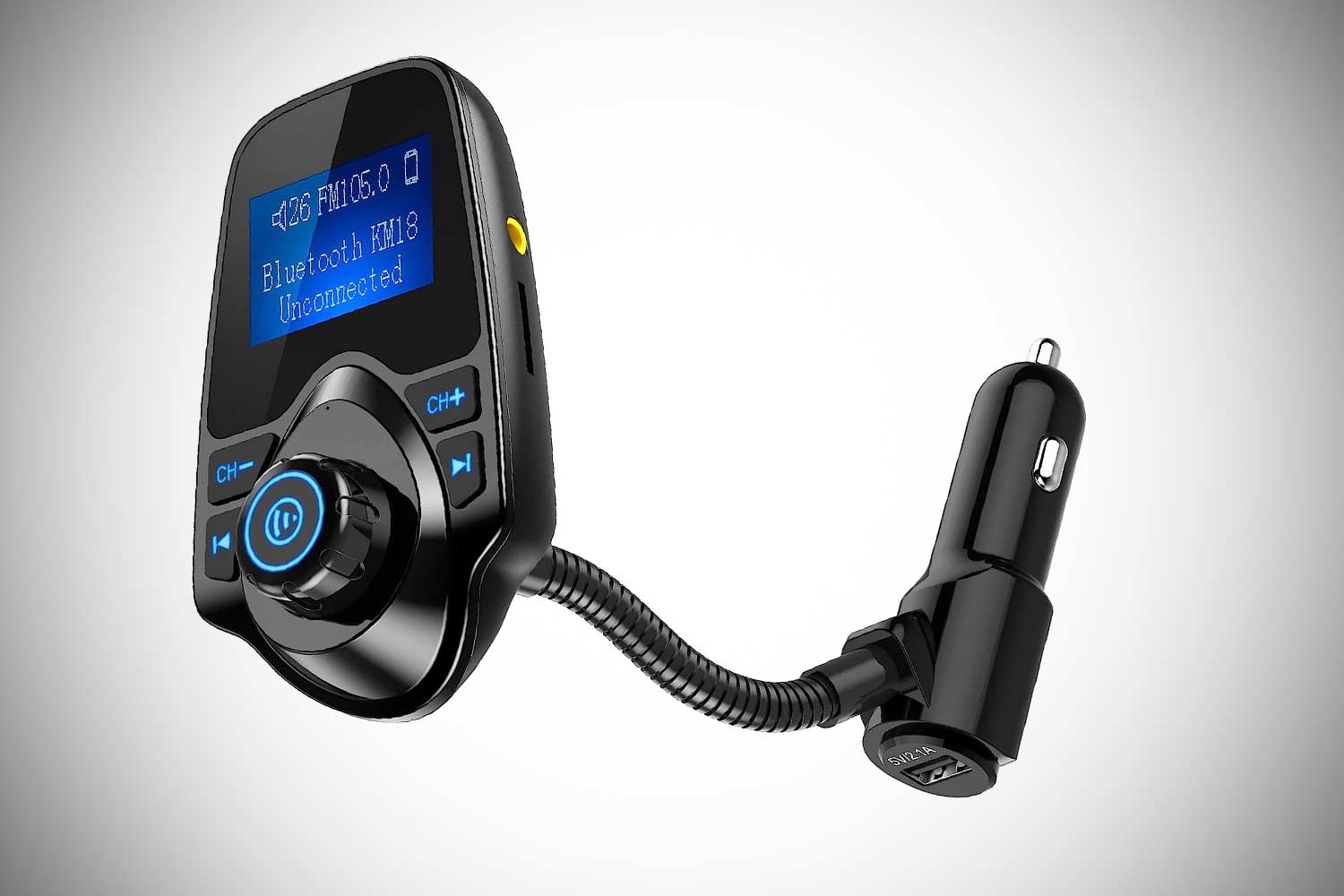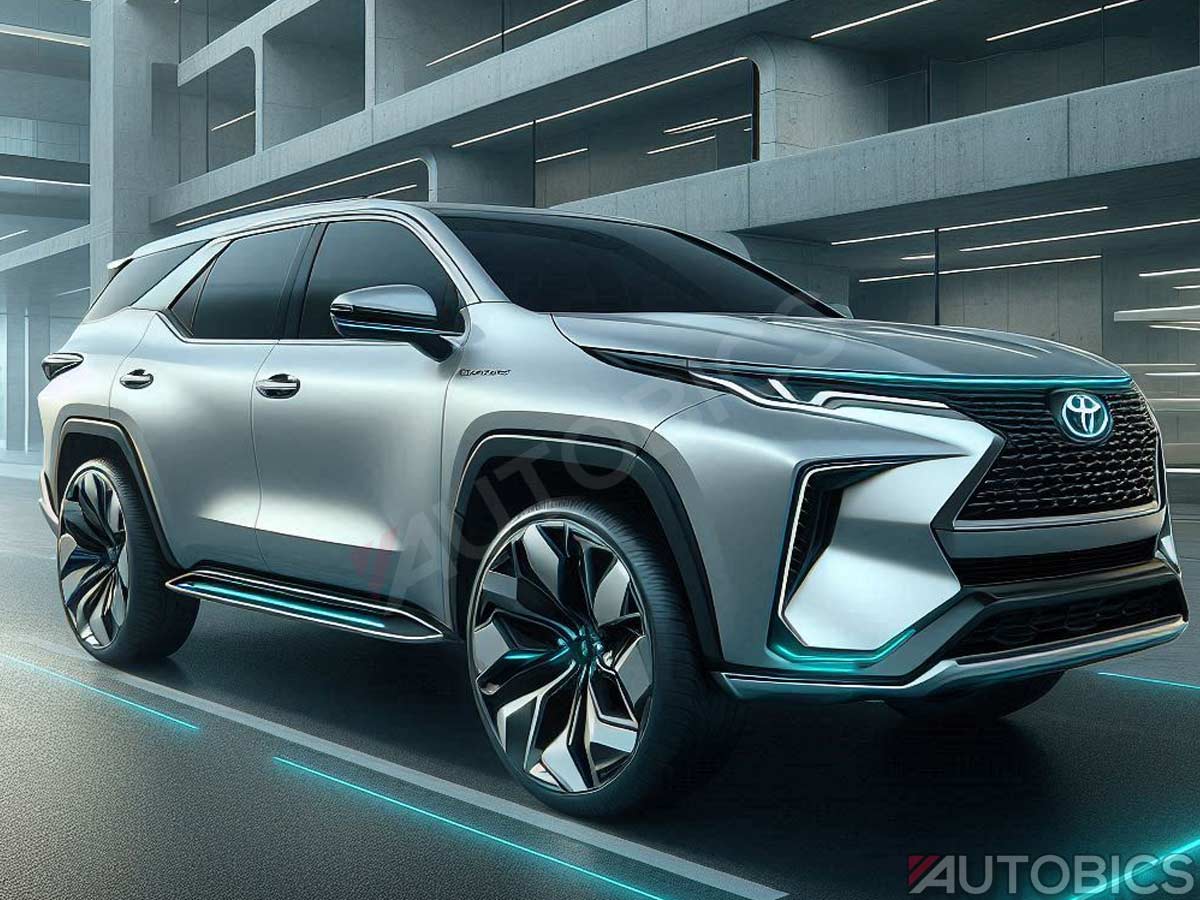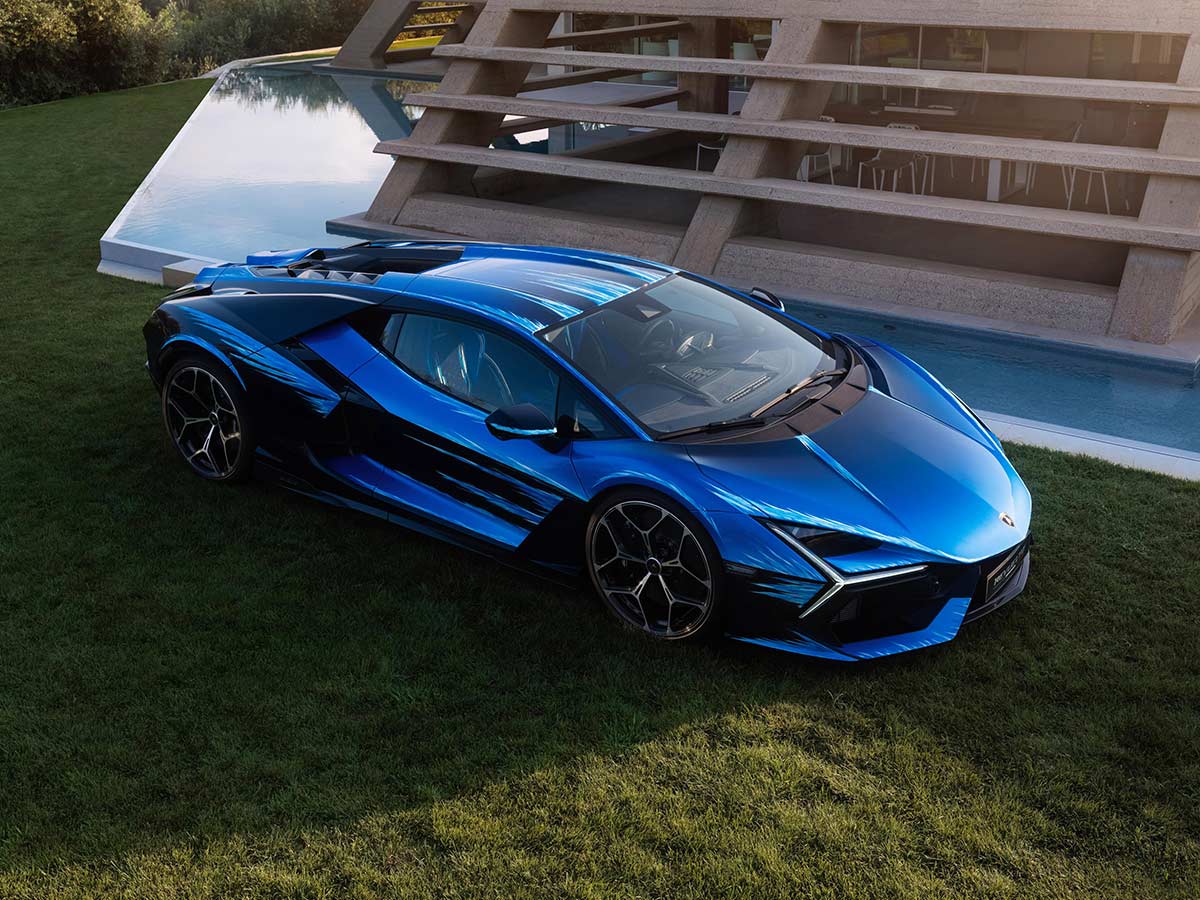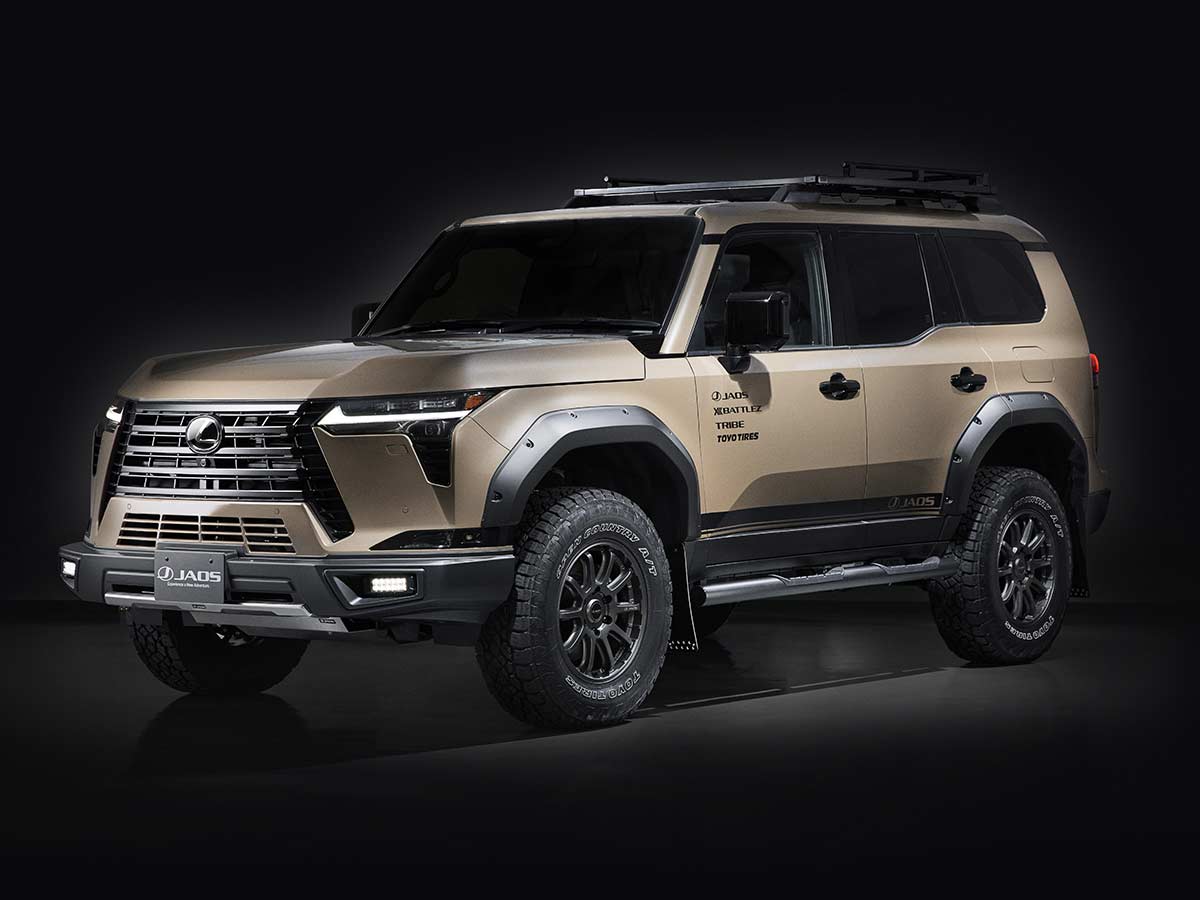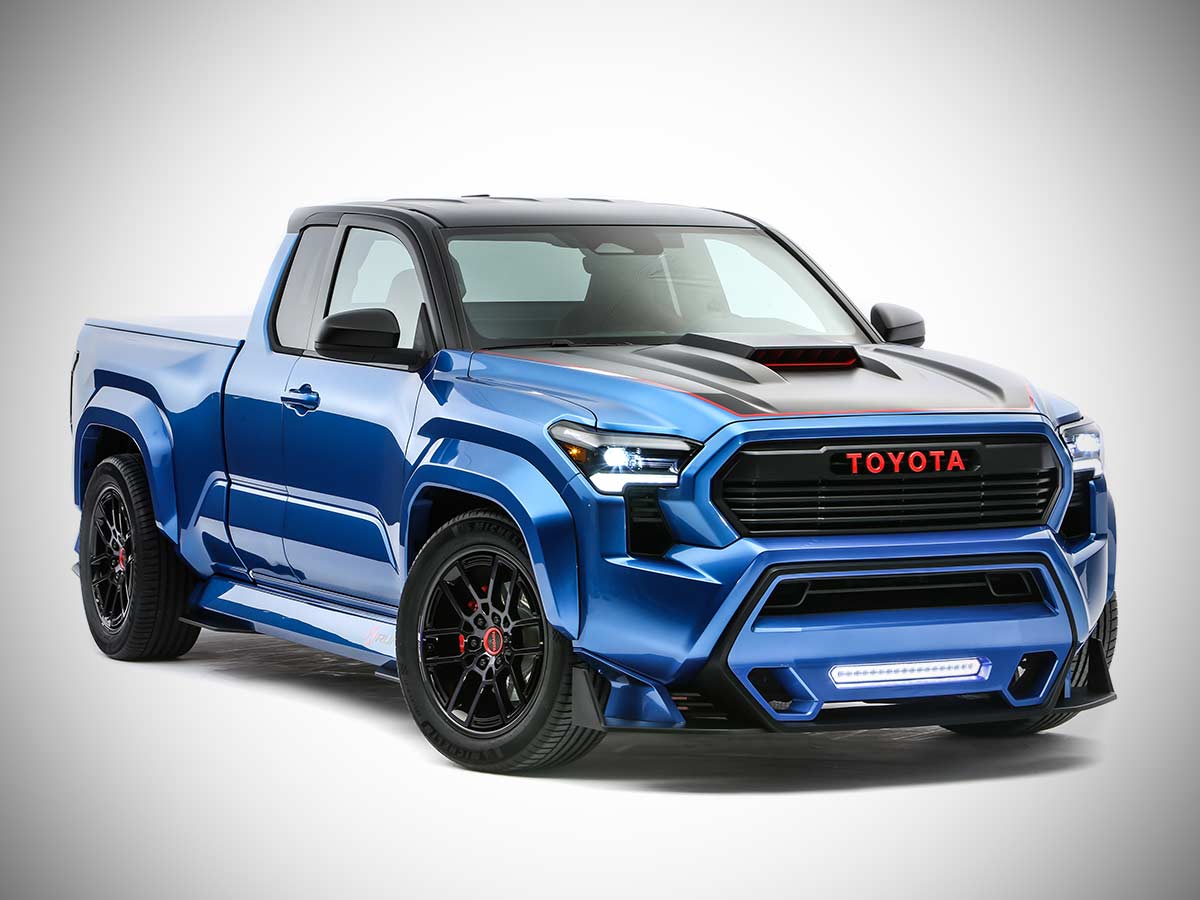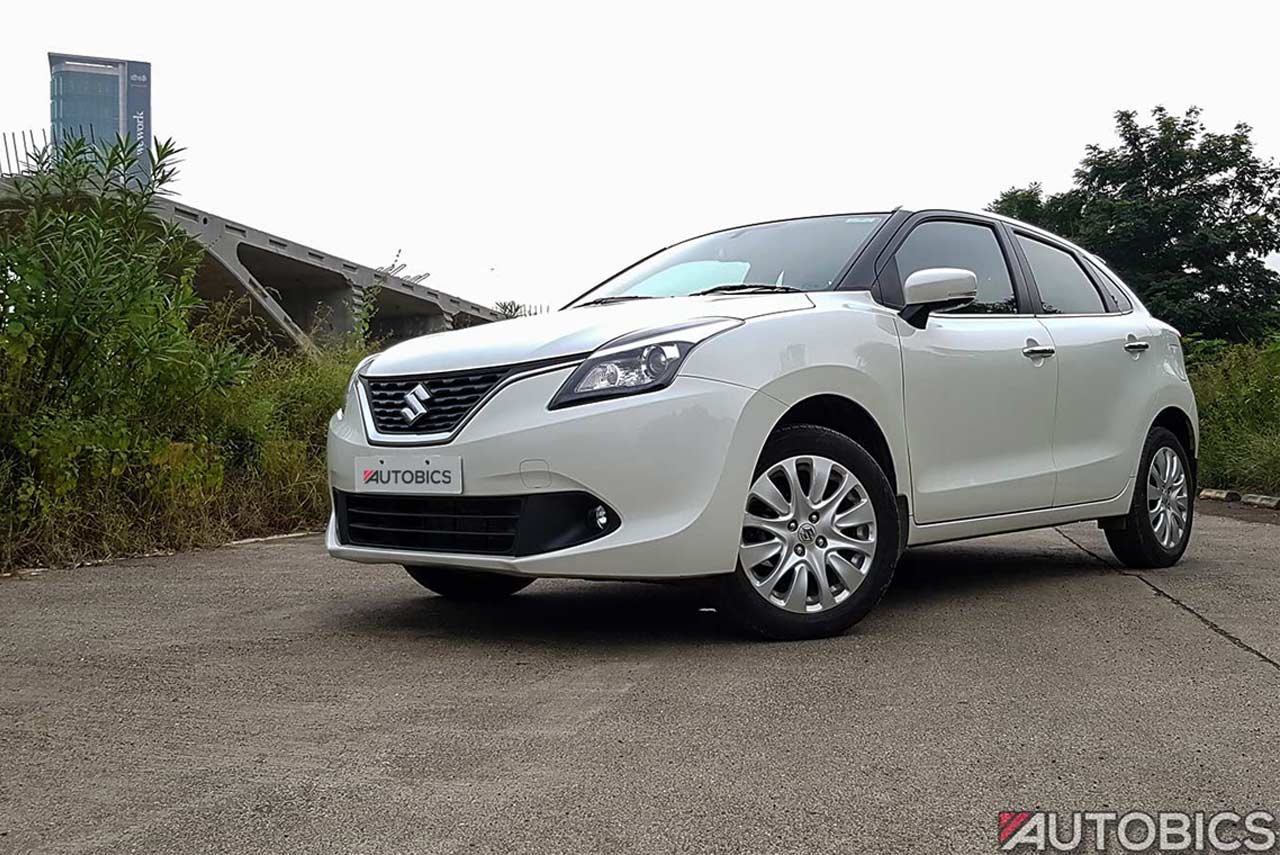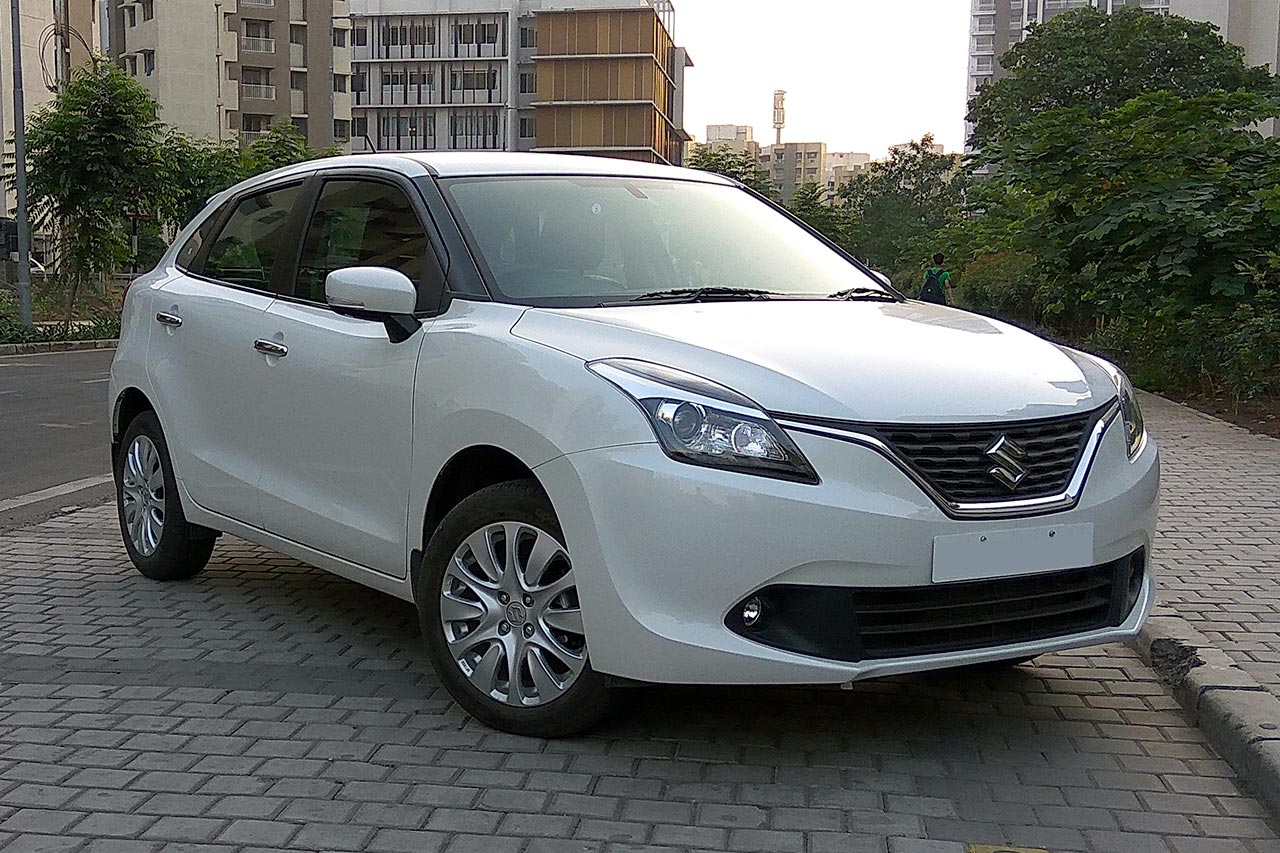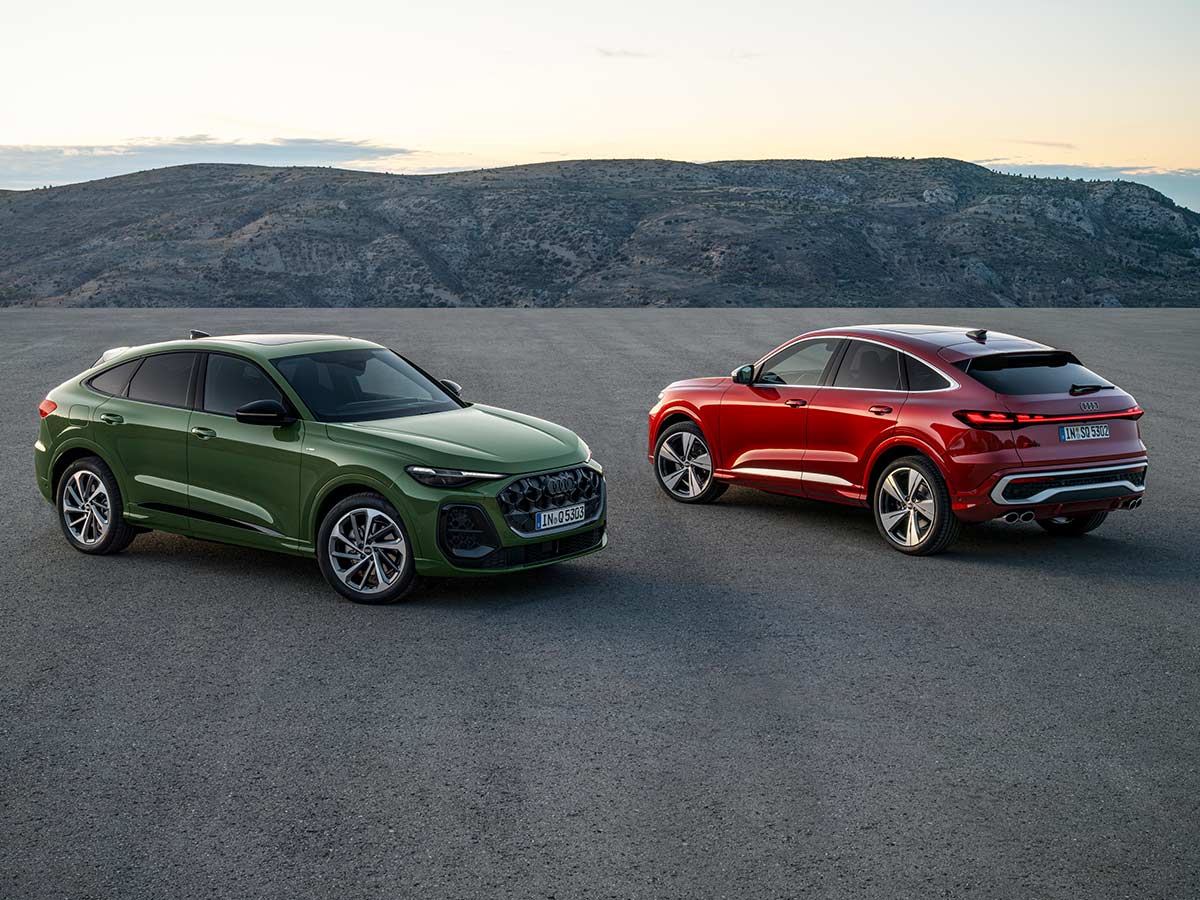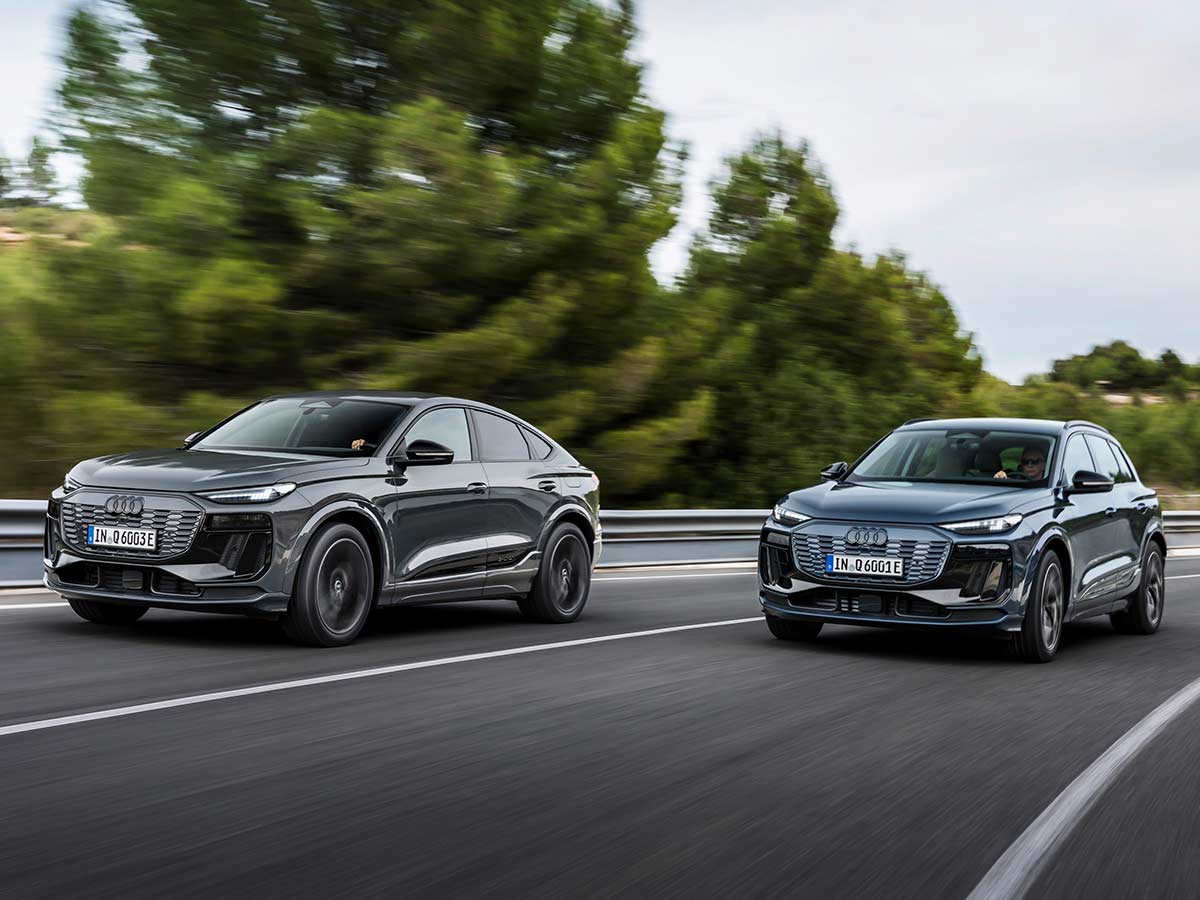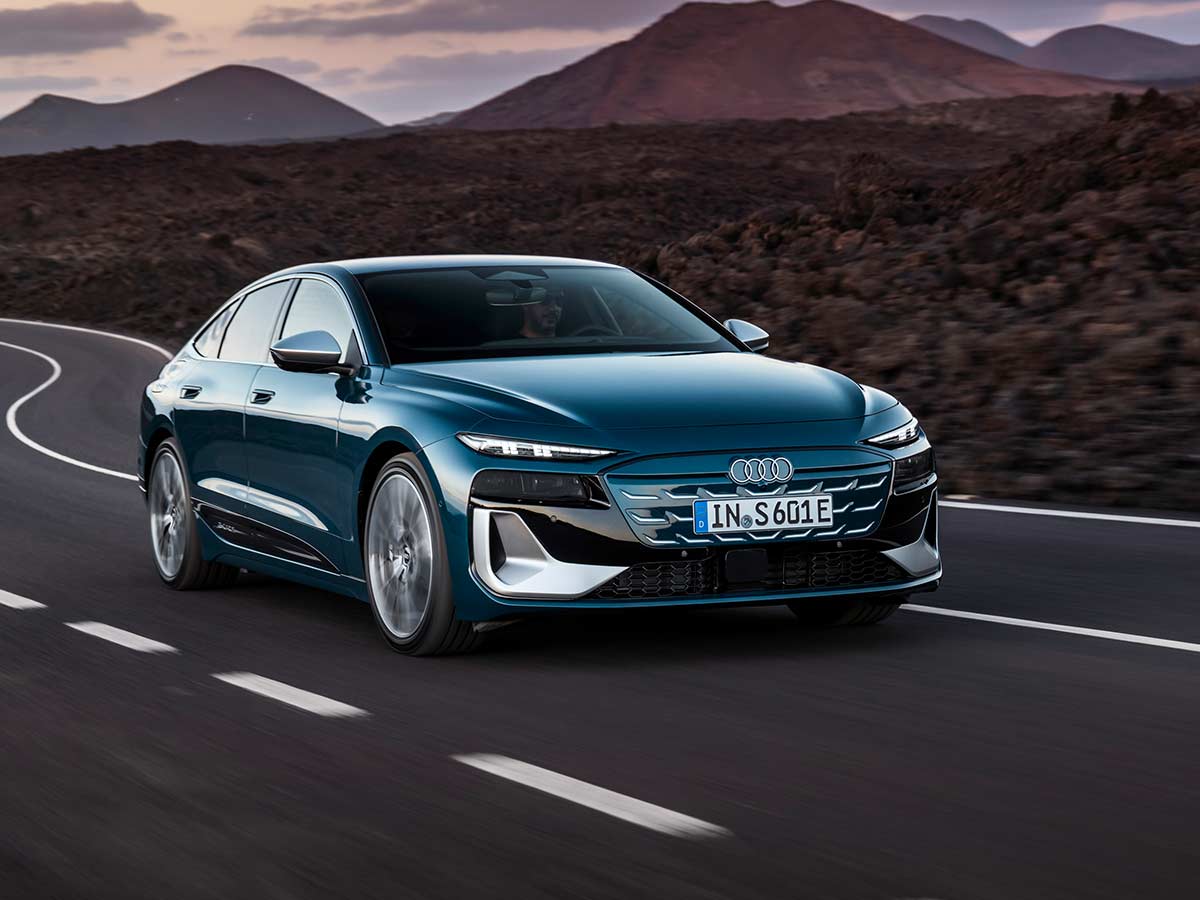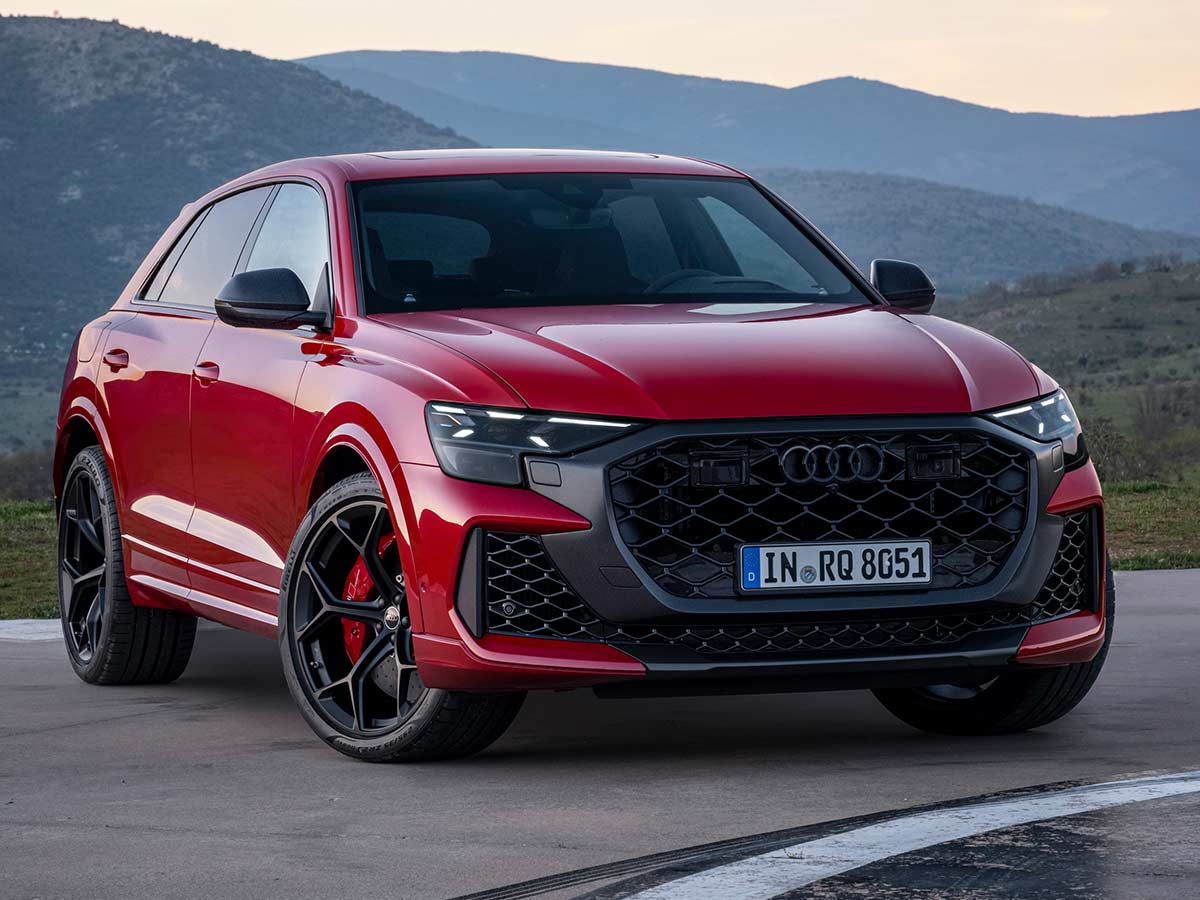The Audi Q6 e-tron is the first production model on the Premium Platform Electric (PPE), marking the next step in the company’s transformation into a provider of premium electric mobility. With its characteristics, the electric SUV stands for Vorsprung durch Technik. The model is defined not only by impressive driving and charging performance, but also by increased efficiency and long range. The Audi Q6 e-tron embodies typical Audi SUV styling with a further refined e-tron design language. The new design philosophy in the interior and pioneering technologies debuting in the new model, begin the next chapter in electric mobility for the Four Rings and make Vorsprung durch Technik a tangible experience every day. With the Q6 e-tron range, e-mobility is coming from the Ingolstadt plant for the first time. The Audi Q6 e-tron quattro and SQ6 e-tron will be available to order from March 2024 at a price of 74.700 and 93.800 euros and will be delivered to customers in the third quarter of 2024.
>>> Great Discounts on Car & Bike Accessories <<<
The PPE, developed jointly with Porsche, and the E 1.2 electronic architecture are important milestones in the expansion of Audi’s global range of electrically powered models. They mark the start of a comprehensive strengthening and rejuvenation of the model portfolio. The Q6 e-tron underpins Audi’s promise to offer electric vehicles in all core segments by 2027. “Built on the new PPE platform, the Audi Q6 e-tron is the next technological leap in premium electric mobility for our customers,” said Gernot Döllner, Chairman of the Board of Management of AUDI AG, at the world premiere at the main plant in Ingolstadt. “The PPE shows how we are pooling expertise within the Volkswagen Group and thus making electric mobility scalable. Thanks to the PPE, we are able to launch high-volume models with high technical standards in different segments and thus further electrify our portfolio,” the Audi CEO added.
The flexibility of the PPE helps in giving the future models their independent character and the typical Audi DNA, despite shared technical underpinnings.
The Q6 e-tron sets standards in terms of e‑performance, range, and charging. It embodies typical Audi SUV styling with a further refined e-tron design language and a high level of everyday usability. Thanks to the new E 1.2 electronic architecture, the Q6 e-tron model series represents the technological spearhead of the Audi portfolio.
Impressive range and charging performance

Powerful, compact, and highly efficient electric motors, as well as a newly developed lithium-ion battery consisting of twelve modules and 180 prismatic cells with a total gross capacity of 100 kWh (94.9 net) ensure a range of up to 625 km (388 mi). The new Audi Q6 e-tron ensures the sporty performance Audi is known for with a system output of 285 kW (power consumption in kWh/100 km combined: 19.4-17.0 (WLTP); CO2 emissions in g/km combined: 0; CO2-class A) and the SQ6 e-tron with a system output of up to 380 kW when the extra function is engaged (power consumption in kWh/100 km combined: 18.4-17.5 (WLTP); CO2 emissions in g/km combined: 0; CO2-class A) thus set standards in terms of performance, range, charging, driving dynamics, and design. At market launch, two model variants with all-wheel drive will be available, followed – depending on the market – by particularly efficient models with rear-wheel drive designed for range, which will also mark the entry into the Q6 e-tron series.
The Q6 e-tron quattro accelerates from 0 to 100 km/h (0-62 mph) in 5.9 seconds (combined power consumption in kWh/100 km: 19.4-17.0 (WLTP); combined CO2 emissions in g/km: 0; CO2-class A). The SQ 6 e-tron takes just 4.3 seconds (combined power consumption in kWh/100 km: 18.4-17.5 (WLTP); combined CO2 emissions in g/km: 0; CO2-class A). The vehicles’ top speeds are 210 (130 mph) and 230 km/h (142 mph) respectively. Two models with rear‑wheel drive will follow at a later date – depending on the market. While one model will be designed for efficiency and range, the other will mark the entry into the Q6 e-tron series.
Thanks to 800‑volt technology and a maximum charging capacity of 270 kW as standard, short charging stops are possible with the Audi Q6 e-tron. Up to 255 km (158 mi) can be recharged in just ten minutes at an appropriate charging station (High Power Charging, HPC). The state-of-charge (SoC) increases from ten to 80 percent in around 21 minutes. Intelligent, high-performance and predictive thermal management is a key component of this impressive charging performance. Equipped with Plug & Charge, the vehicle authorizes itself at compatible charging stations when the charging cable is plugged in and commences the charging process. Charging is also fully automatic. If a charging station works with 400‑volt technology, the Audi Q6 e-tron can, for the first time, enable bank charging. The 800‑volt battery is automatically divided into two batteries at equal voltage, which can then be charged in parallel with up to 135 kW. Depending on the state of charge, both halves of the battery are first equalized and then charged simultaneously. AC charging with up to 11 kW is possible at standard home chargers.
An important component in increasing the efficiency and therefore the range of the Audi Q6 e-tron is the advanced recuperation system. Around 95 percent of all everyday braking processes can be handled by this system. The Audi Q6 e-tron recuperates at up to 220 kW.
Typical Audi SUV design: the exterior
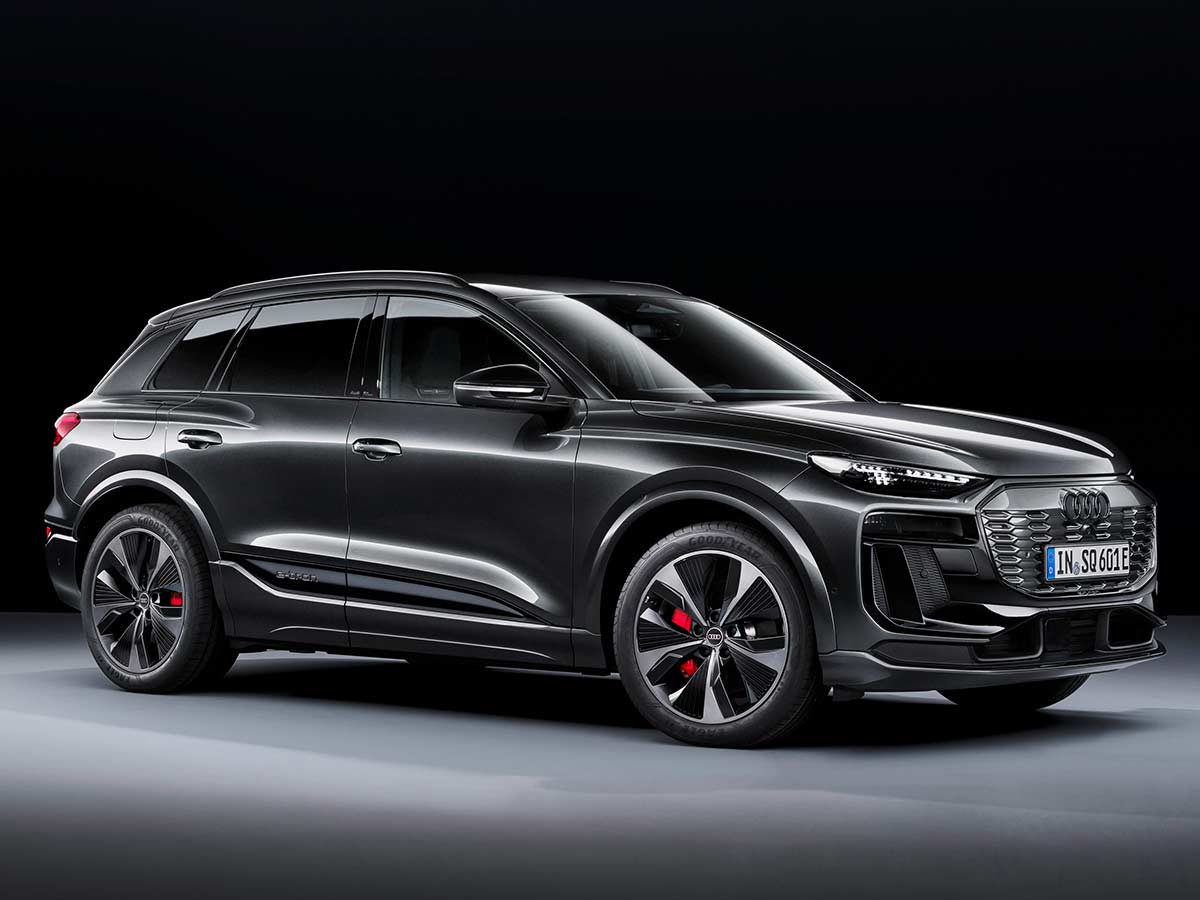
The Audi Q6 e-tron is positioned in the premium midsize segment and, with a length of 4,771 millimeters (15.6 ft), a width of 1,993 millimeters (6.5 ft) and a height of 1,648 millimeters (5.4 ft), the SUV offers maximum space, comfort and suitability for everyday use. The wheelbase of 2,899 millimeters (9.5 ft) allows plenty of legroom in the second row of seats. With these dimensions, the Audi Q6 e-tron offers sufficient space for five passengers and luggage and offers high utility value. Audi thus fulfills the requirements customers place on an SUV.
The Audi Q6 e-tron comes with perfect proportions thanks to the Premium Platform Electric. The ratio of a long wheelbase to very short overhangs forms the basis for the familiar powerful, dynamic package seen in the exterior of Audi’s Q models. The Audi Q6 e-tron also embodies the further developed e-tron-specific design language.
Its striking SUV look makes for an impressive and sporty appearance. In the car’s bodywork, soft shapes are in constant interplay with the creases and edges, lending dynamism to the shadows even when stationary. The upright front features a completely closed Singleframe and a mask in selenite silver or gloss black, which surrounds the three-dimensionally shaped Singleframe and the side air intakes. The high-positioned digital daytime running lights give the Q6 e-tron a very distinctive and independent appearance.
The greenhouse is stretched low and taut over the powerful body. It is slightly tapered towards the rear and the gently sloping D‑pillars flow elegantly into the bodywork’s muscular shoulders. The opening between the D‑pillar and the roof gives the vehicle a more dynamic appearance and makes the cabin appear more stretched and longer. A prominent line running from the rear lights to the rear doors emphasizes the upper section of the “quattro blisters” – the contours of the body on which the gently sloping D‑pillars are supported. The blisters are a core element of Audi’s design DNA. Audi calls this central design principle “making technology visible”. The dynamically tightened rear creates a mixture of sporty elegance and masculine power. The clean and broad rear architecture with its continuous light strip lends the Q6 e-tron quattro1 the clarity and aplomb typical of Audi.
World first in lighting technology
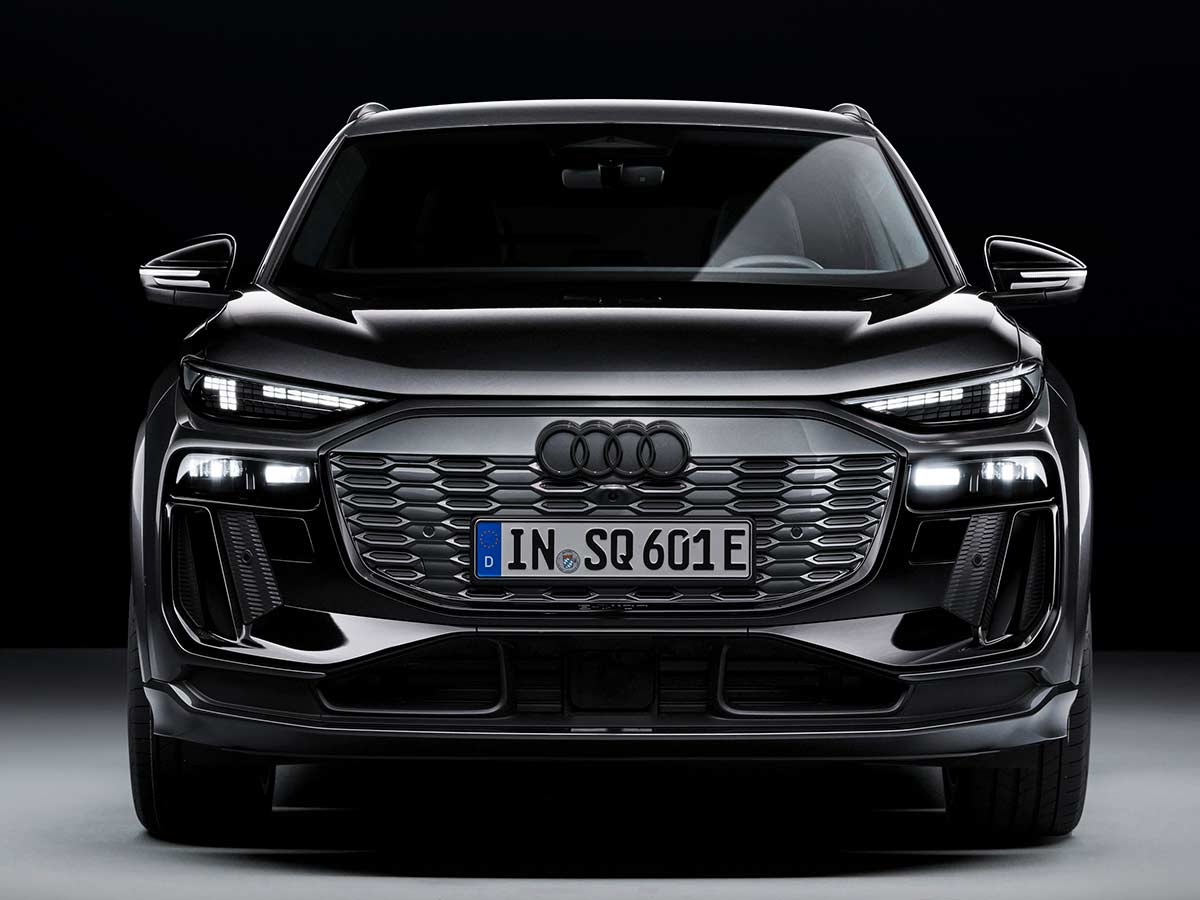
With the Q6 e-tron, Audi is not only starting a new chapter in electric mobility, but also in an important part of Audi’s DNA: lighting technology. With the world’s first active digital light signature, the electric SUV is ushering in a new era characterized by design and aesthetics that are unique to Audi.
A software module in one of the five domain computers of the Audi Q6 e-tron makes this form of light signature possible. In the case of the second-generation digital OLED rear lights, the six OLED panels with a total of 360 segments generate a new image every ten milliseconds using a specially developed algorithm. Thanks to the perfect symbiosis between the lighting design and the new technology, the light in the new Audi Q6 e-tron appears livelier and more intelligent than ever before. The active digital light signature also points the way to the future of Audi lighting technology.
At the front, the active digital light signature is created by the interaction of the algorithm with twelve segments that dim up and down. At the rear, all digital OLED segments are used for this purpose. The individual light segments interact in such a way that the total light intensity of the light signature does not vary.
With the second generation of digital OLED rear lights, the Audi Q6 e-tron takes lighting design, functionality and therefore road safety to a new level. For the first time, the digital OLED rear lights can communicate with the vehicle’s surroundings in a targeted manner (Car‑to‑X). Audi has also taken the safety functions to a new level. The proximity detection system already known from other Audi models has been extended in the new Q6 e-tron to include the communication light. It warns other road users of accident and breakdown sites. In addition to the regular taillight graphics, the communication light displays a specific static tail light signature with integrated warning symbols in the digital OLED combination rear light in critical driving or traffic situations.
The technology, which is debuting in the Audi Q6 e-tron, also sets new standards in terms of individualization: With a total of up to eight digital light signatures in the redesigned daytime running lights of the Matrix LED headlights and in the digital OLED rear lights 2.0, owners can individualize their Q6 e-tron in a completely new way.
A new design philosophy goes into series production with the Q6 e-tron

The interior of the Audi Q6 e-tron is orientated towards the needs of the user more than ever. The three-dimensional and high-contrast design of the interior deliberately places elements in the foreground or background, creating a spatial architecture that is tailored to the occupants in terms of design and ergonomics. The Audi MMI panoramic display and the MMI passenger display form a visually clear digital stage. The interior emphasizes a homely ambience. The “Softwrap” extends from the doors across the entire cockpit to the center console, creating a homogeneous and enveloping feeling of space. The same colors and high-quality materials, some of which are recycled, can also be found in the seats. The materials used were selected from a functional point of view and at the same time ensure a clear design differentiation between the various vehicle areas in the interior. Comfort-oriented areas are designed with generous surfaces and soft materials. In contrast, the precisely designed control areas in high-quality high-gloss black emphasize the clarity of interaction with the vehicle.
Thanks to the new PPE, which was developed specifically for e-mobility, the vehicle has a generous feeling of space and roominess as well as a high level of everyday practicality. The interior offers plenty of storage space and compartments. The increased comfort of the middle seat in the rear is typical of an electric car with a long wheelbase (2,899 millimeters, equivalent to 9.5 ft) and lacking a central tunnel. The trunk offers 526 liters (18.5 cu ft) of storage space. If the rear seat bench is folded down, the storage space increases to up to 1,529 liters (53.9 cu ft). The rear seats can be folded down separately (40:20:40). A further 64 liters (2.2 cu ft) of storage are available in the frunk (front trunk) under the front hood – a convenient place to stow smaller travel bags, for example. As a result, the Audi Q6 e-tron offers sufficient space for five passengers and their luggage. With its high utility value, it fulfils the requirements that customers place on an Audi SUV.
E 1.2 – high-performance and future-oriented electronic architecture
With the newly developed electronic architecture E3 1.2, customers experience digitalization in the vehicle more directly than ever before. The name E3 stands for End-to-End Electronic Architecture. During development, the overriding goal was to create a future-proof, standardized framework. The function-oriented architecture is based on a new domain computer structure with five high-performance computers (High-Performance Computing Platform, HCP), which control all vehicle functions – from infotainment and driving functions through to semi-automated driving in later evolutionary stages. The most powerful electronic architecture to date in terms of computing power is consistently geared towards customer requirements. One focus of development was on high-performance and secure networking of domain computers, control units, sensors, and actuators in order to master more complex systems and maintain modularity. In addition, the E3 1.2 is characterized by a high-performance and seamless backend connection for Car-to-X swarm data applications and computationally intensive offboard functions. It is debuting in the Audi Q6 e-tron, designed to be used across models, and forms the basis for future innovations.\
Digital Stage: new display and operating concept
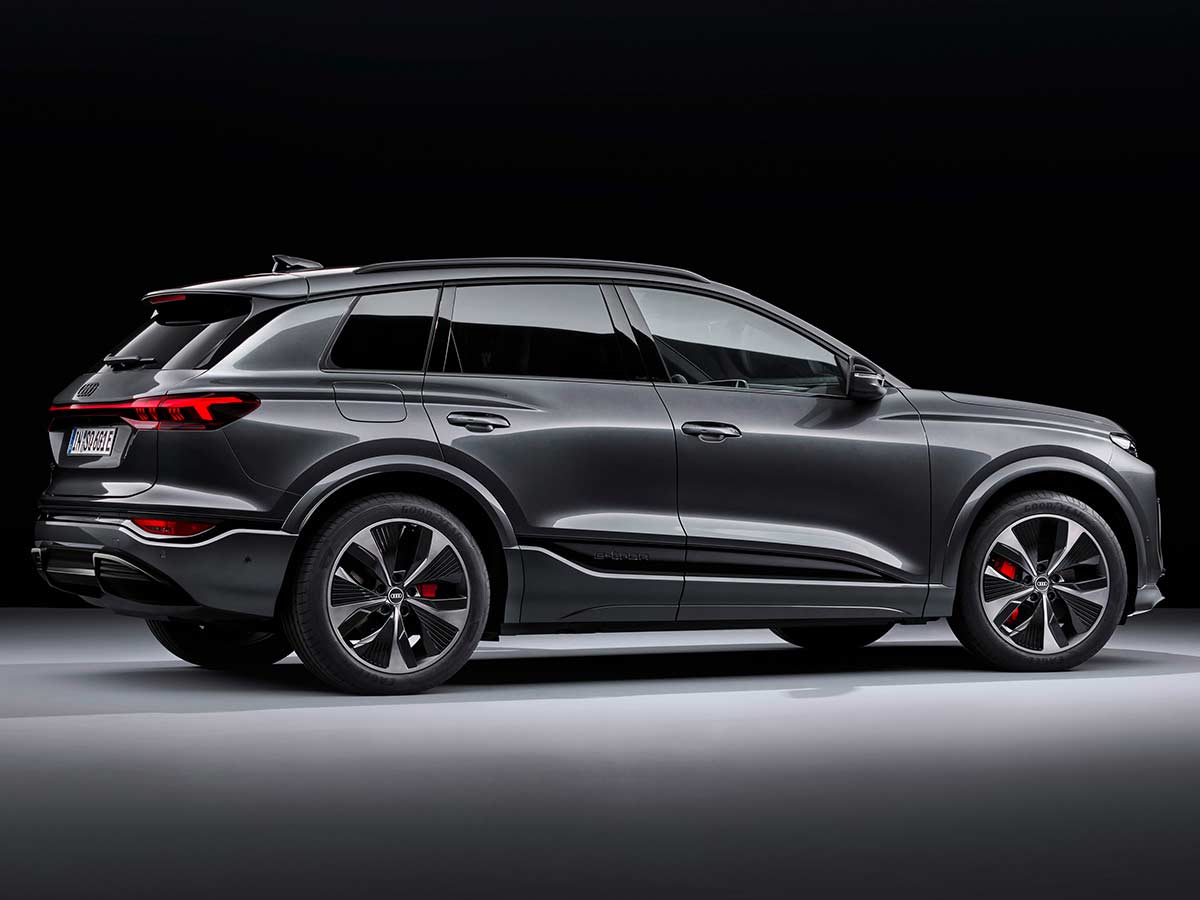
The Audi Q6 e-tron model series has a fully connected and digital interior based on the new electronic architecture. Made up by the Audi MMI panoramic display and the MMI passenger display, the so-called Digital Stage is a key feature of the interior. The clearly grouped displays are perfectly integrated into the design concept and give the interior a generous and airy feeling of space. The slim, free-standing Audi MMI panoramic display has a curved design and OLED technology and consists of the 11.9-inch Audi virtual cockpit and the 14.5-inch MMI touch display. The driver’s area is designed as a curve and the display with its concave shape is oriented towards the driver. The contours of the curved display are also reminiscent of the single frame typical of Audi. The ambient lighting makes the Curved Display seem to float at night and creates a suitable setting. Especially for the front passengers, Audi complements the digital stage with the 10.9-inch MMI front passenger display with Active Privacy Mode, which prevents it from distracting the driver while on the move. This allows the front passenger to stream films/video content, assist with navigation, or even find a charging station for example.
With the optional Augmented Reality Head-Up Display, another central element of the digital stage, Audi is taking a major step forward in display technology. It reflects a large tilted image plane across the windshield towards the driver and shows relevant information such as speed, traffic signs, assistance, and navigation symbols. The image plane is tilted forwards to enhance the augmented reality impression. The focus of the human eye moves with it. This process and the far virtual distance of the image create the impression that the elements shown are floating up to 200 meters (656 ft) away. Virtual content is thus seamlessly integrated into reality.
The information can be understood quickly without irritating or distracting the person driving. The field of view of the augmented reality function corresponds to a diagonal of around 88 inches viewed from the driver’s position.
Audi’s self-learning voice assistant, the Audi Assistant, can be used to control numerous vehicle functions. The digital assistant with AI support is deeply integrated into the vehicle and, for the first time, is displayed using an avatar in the central touch display of the MMI and in the augmented reality head-up display. The new voice assistant understands more than 800 voice commands. It can also be activated via various touchpoints and via the myAudi app, for example. The voice assistant learns continuously based on user behavior and thus provides support to the person driving. This support can be grouped into three categories: proactive suggestions (context information is used to proactively suggest functions for activation based on this data), smart routines (automatically recognizes recurring operating sequences, such as using the seat climate control from certain outside temperatures) and intelligent lists (such as call lists). The spoken commands are also shown on the display (see-what-you-speak principle). The assistant constantly learns from user behavior and thus supports the driver.
Infotainment – integrates customers’ digital world
The new infotainment system uses Android Automotive OS as its operating system for the first time. Content is always up to date thanks to over-the-air updates. The latest Audi connect services and the enhanced e-tron route planner, included as standard, are therefore always up to date. Apps such as YouTube are available via the store for third-party apps, which is integrated directly into the MMI and does not require a smartphone.
The store gives customers access to a wide range of apps. Applications from categories including the following are available at launch: Music, video, gaming, navigation, parking & charging, productivity, weather, and news services. The store is constantly being expanded and the app portfolio is market-specific.
The heart of the Bang & Olufsen Premium sound system is a highly efficient amplifier. It drives 20 loudspeakers with 830 watts of power. Four of these are integrated into the headrests of the front seats, for the first time enabling sound zones in an Audi. The dynamic interaction light (IAL) offers a variety of communication functions and thus supports the car’s interaction with the occupants. It spans the interior and cockpit as a broad arc. The standard equipment of the Q6 e-tron series also includes the enhanced e-tron route planner.
Precisely tuned driving dynamics thanks to new steering and torque distribution
Most of the systems and components making up to the chassis are newly developed. Typical for Audi are the superior and easily controllable acceleration and deceleration in all driving situations. There is a precisely defined set-up philosophy with regard to the chassis. The suspension control systems involved are precisely coordinated with each other. The driving dynamics of the Q6 e-tron are significantly influenced by the partially redesigned front axle.
For the first time in an Audi model, the control arms are positioned in front of the suspension arms. This results above all in package advantages for the positioning of the high-voltage battery. The newly developed components lead to improved kinematic properties.
The steering rack is now fixed to a subframe. The refined axle kinematics provide noticeably increased driving dynamics. The new front axle also improves the steering behavior. This makes the vehicle feel significantly more agile.
The rear-biased torque distribution as part of a highly variable all-wheel drive system also enhances the dynamic driving characteristics of the Q6 e-tron. The different dimensions of the electric motors on the rear and front axles enable rear-biased torque distribution even under full load. In order to complement the rear-biased weight distribution as well as to ensure even more grip and driving dynamics, the rear tires of the Q6 e-tron are wider than those at the front.
Always ready to assist – the driver assistance systems
Relating to the driver assistance systems of the new Q6 e-tron, Audi provides a wide range of functions that significantly improve everyday driving and road safety for all road users. A new feature for the Q6 e-tron is the adaptive driving assistant plus. It not only helps with acceleration, maintaining speed, keeping distance and lane guidance, but also uses high-resolution map data and swarm data from other vehicles aggregated in the cloud to improve the handling of the Q6 e-tron. The SUV uses the radar sensors, the front camera, and ultrasonic sensors for easy to operate guidance. The vehicle uses the collected information to create a virtual route and follows it dependably and as comfortably as possible across the entire speed range and in traffic jams.
Rear parking assistance, cruise control, lane departure warning, efficiency assist, active front assist and a distraction and drowsiness warning system are all on board as standard from launch. Customers have the option of further assistance systems and a safety package as part of various equipment packages.
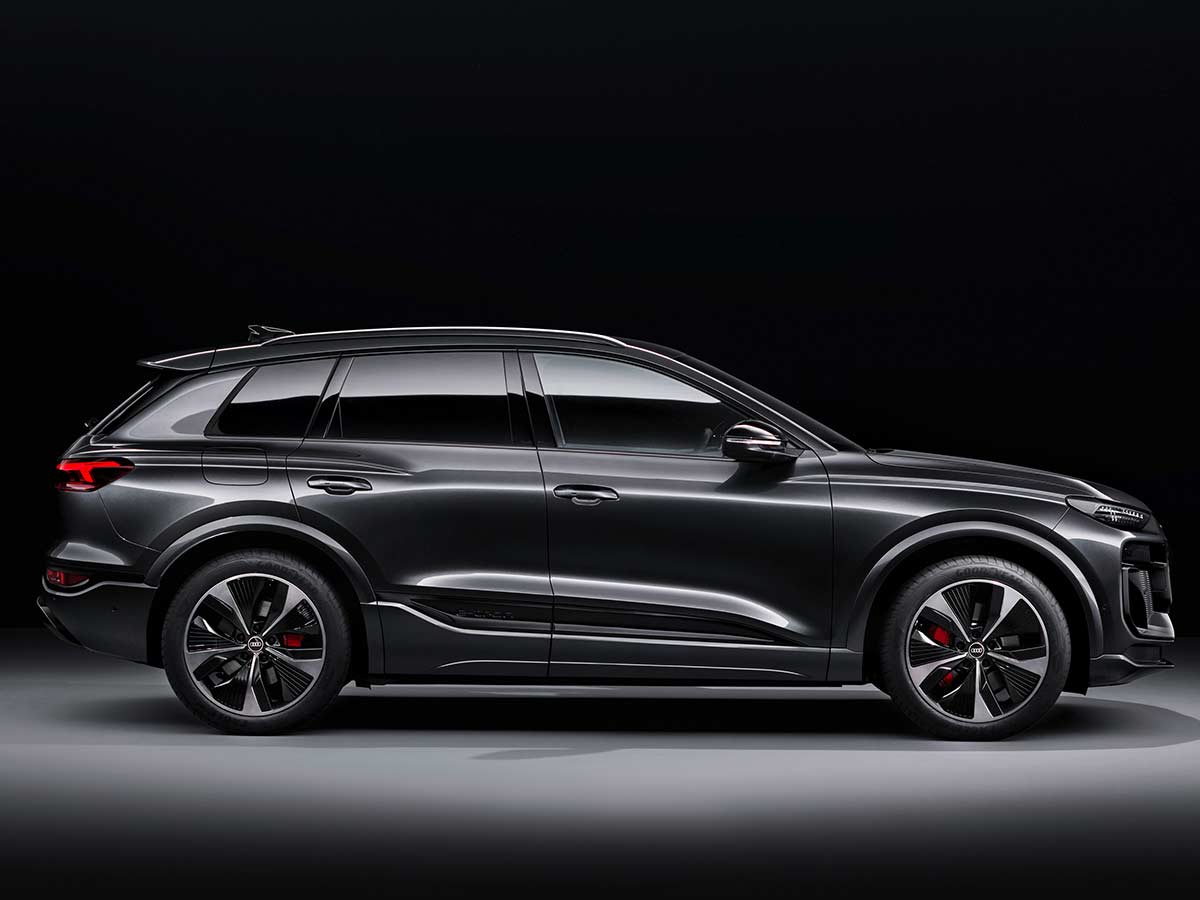
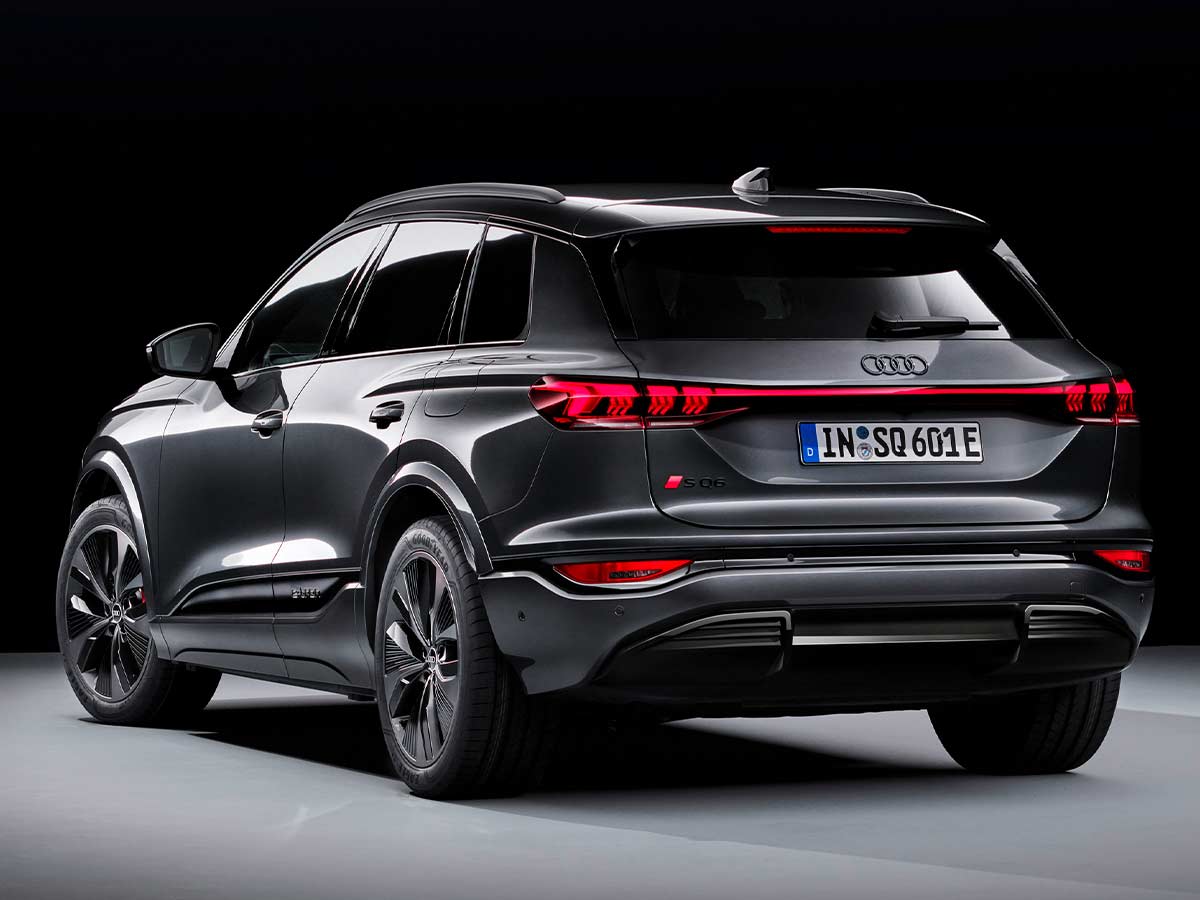
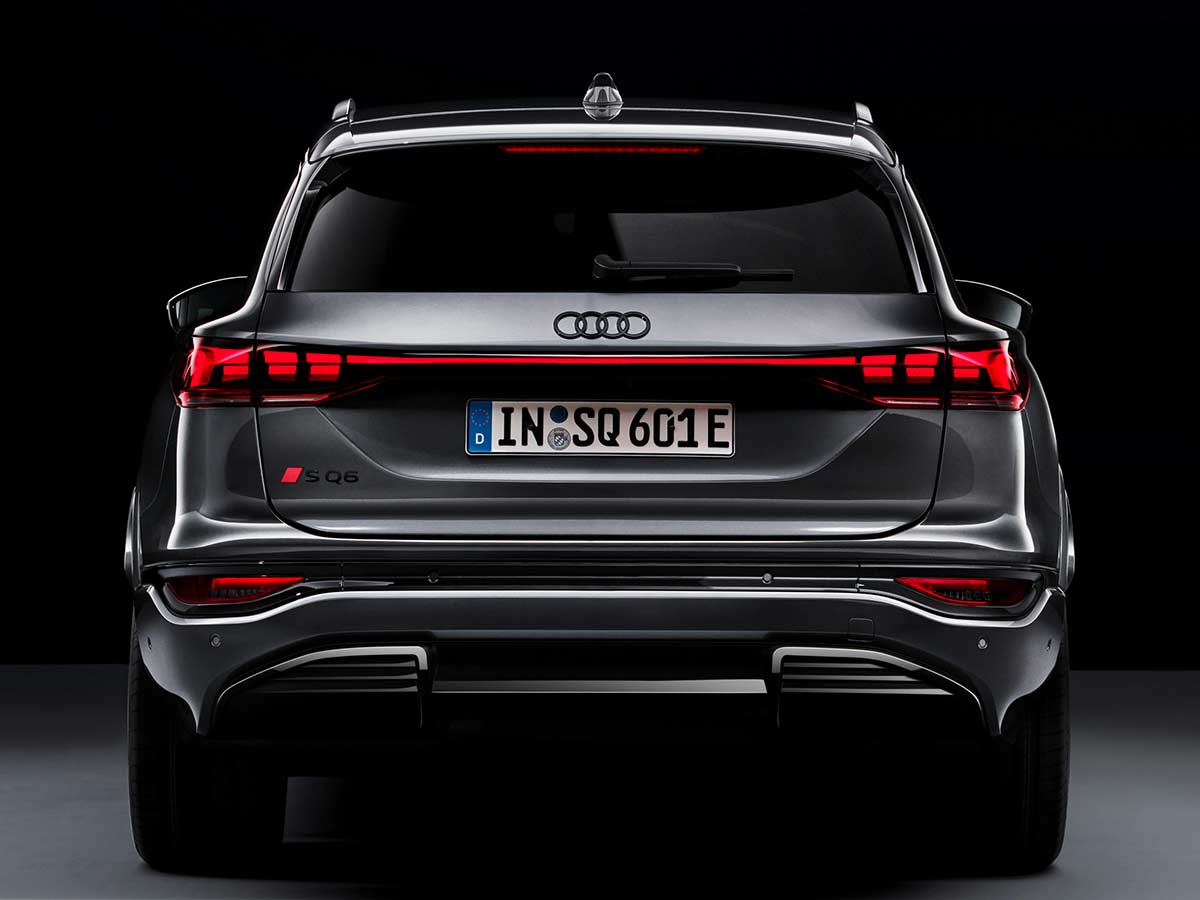
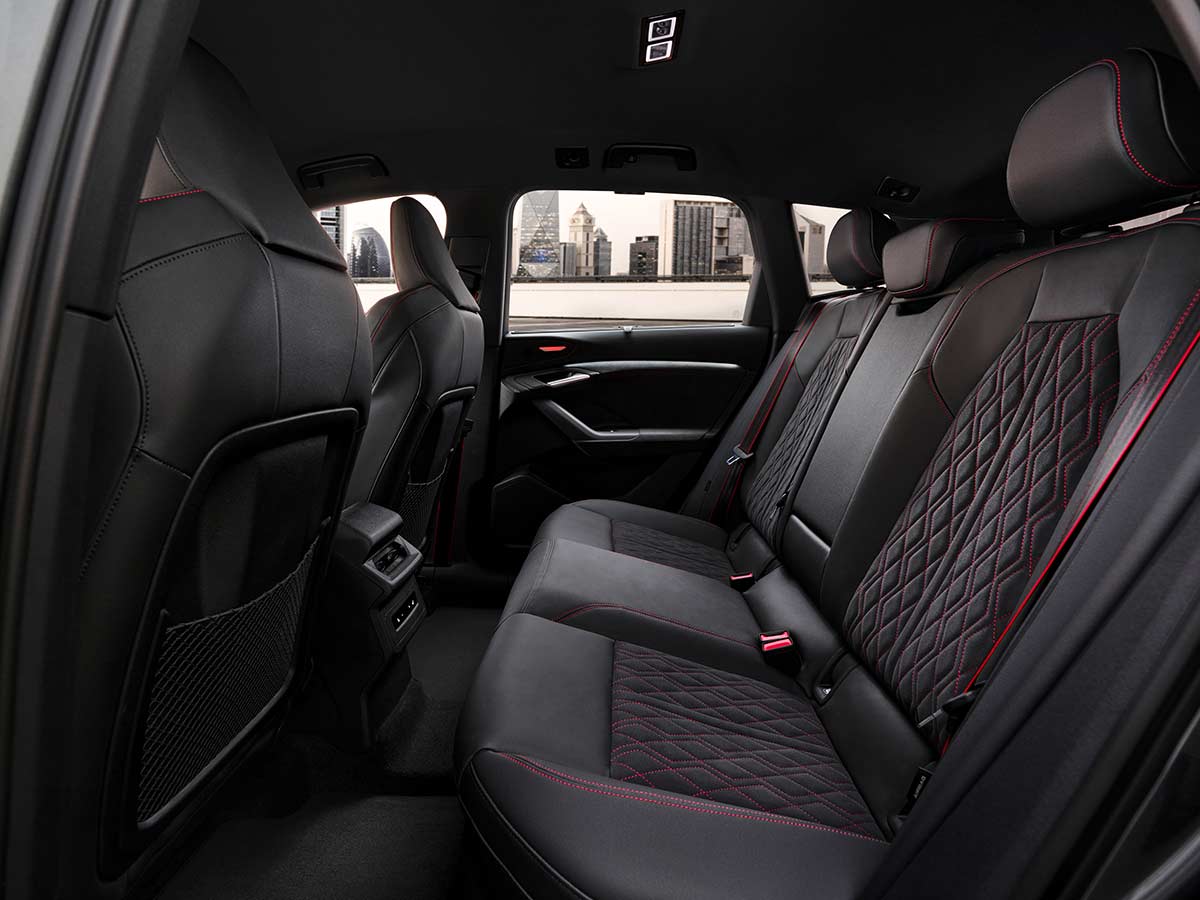
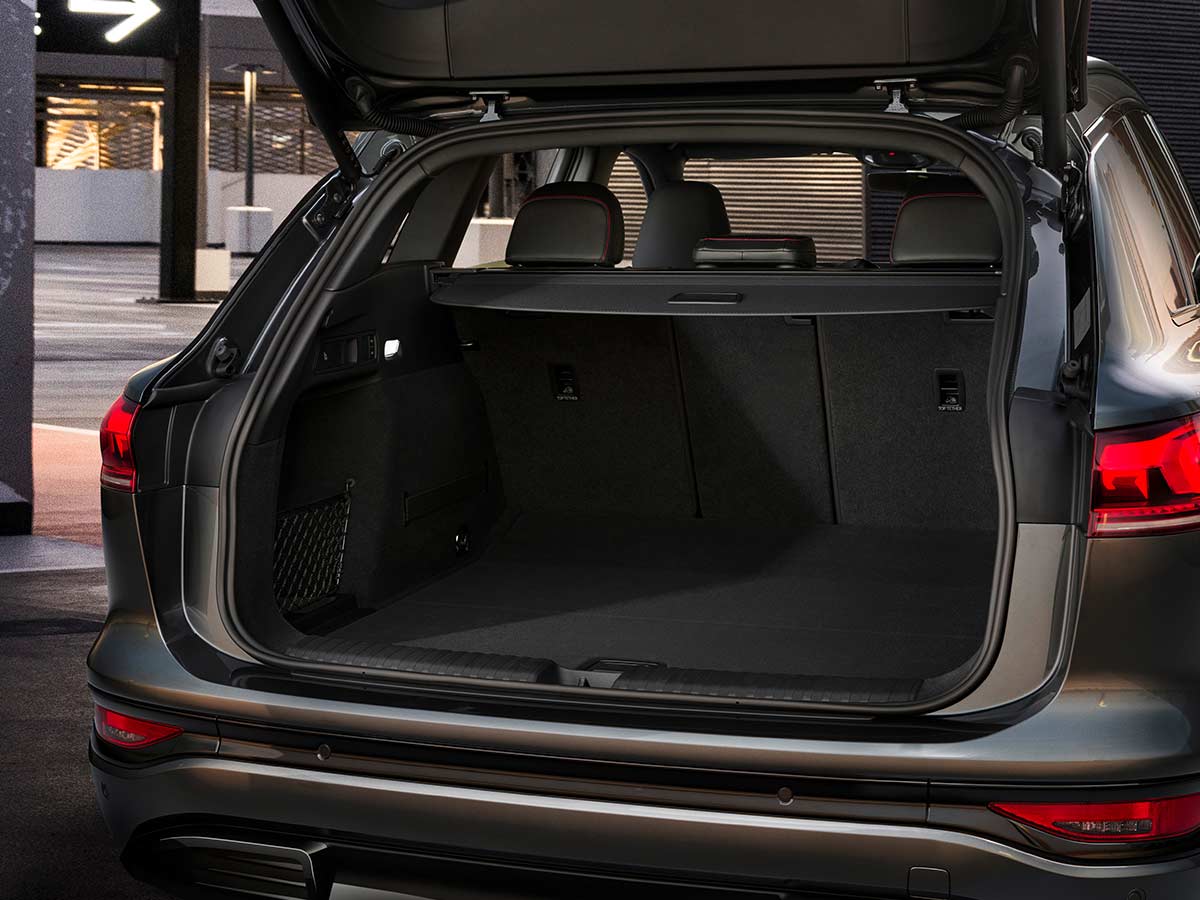
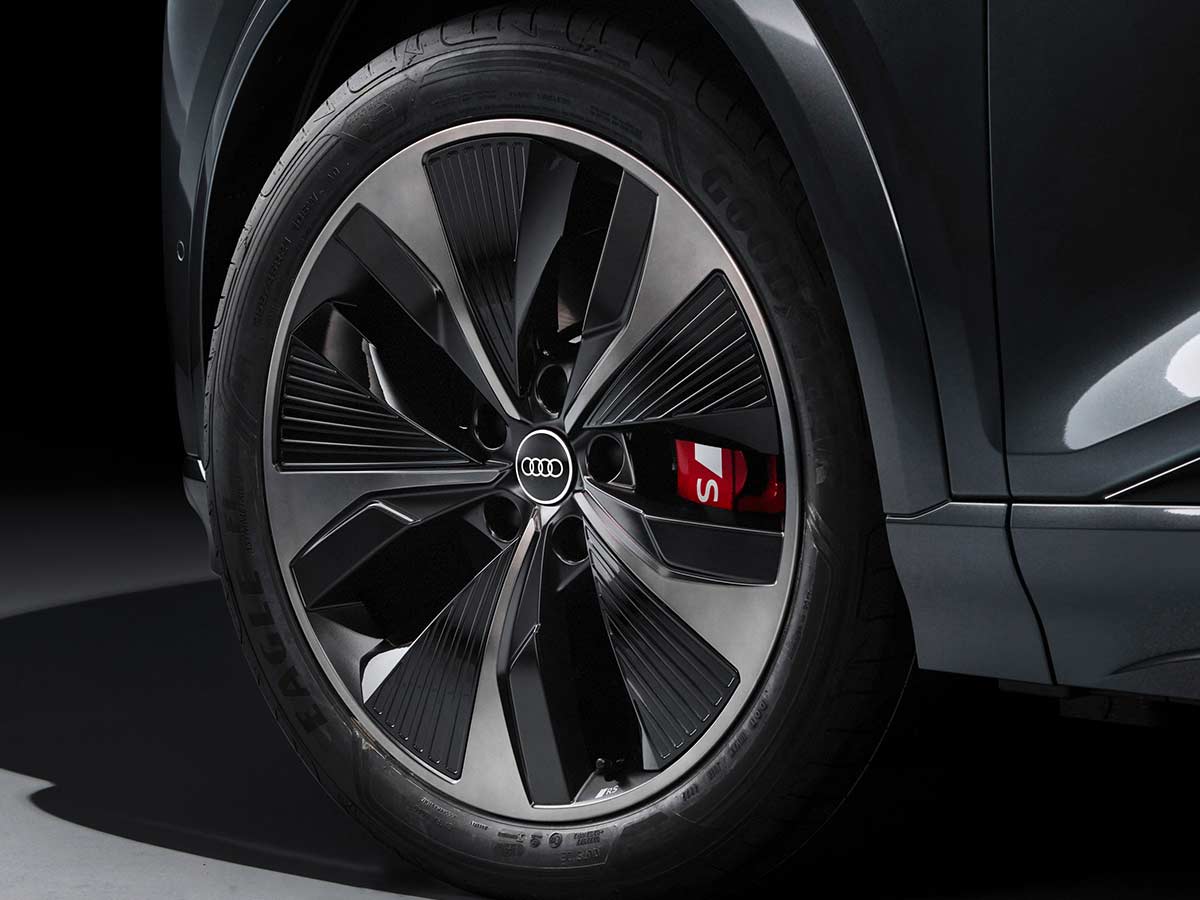
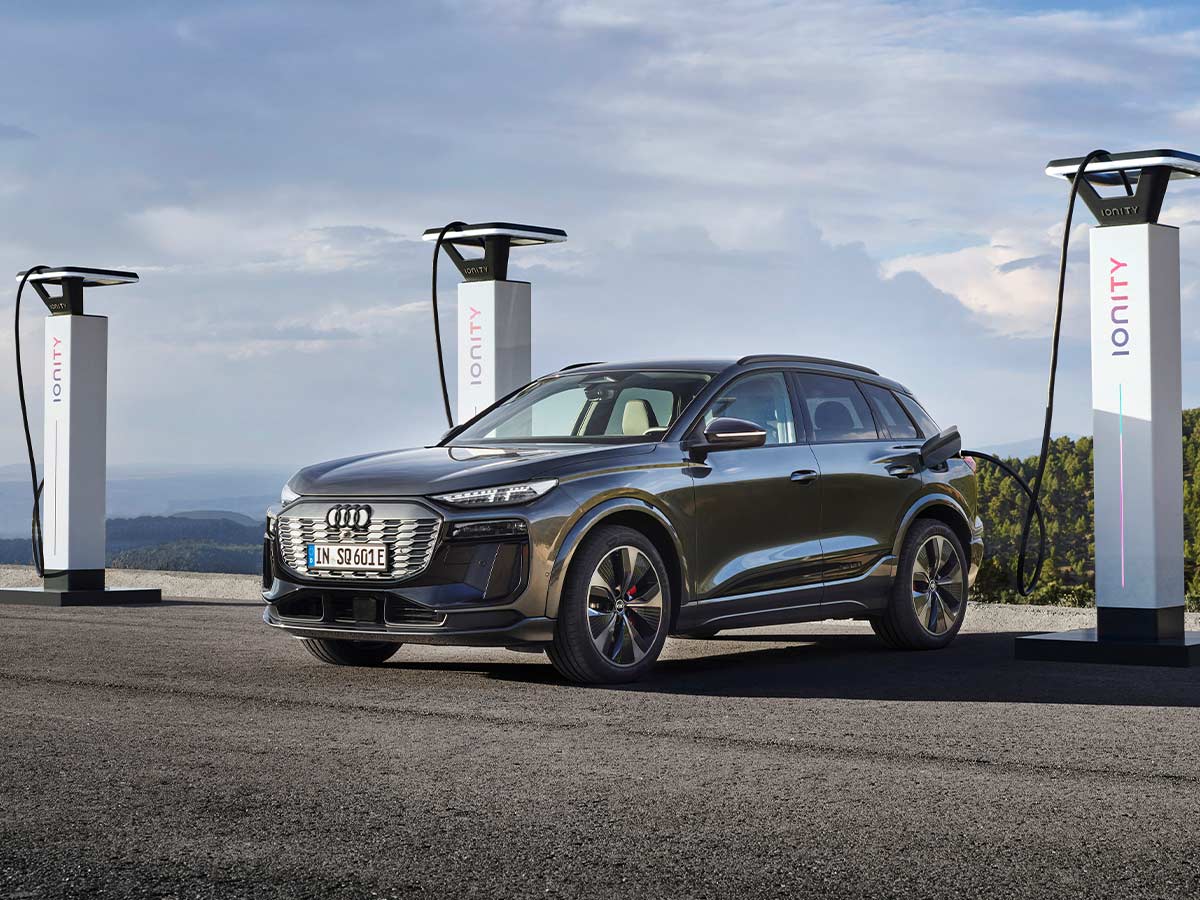
Materials from recycling processes
Materials prepared using recycling processes reduce the use of primary resources in the production of the Q6 e-tron and ensure a closed and therefore efficient and sustainable material cycle. In addition to materials made from recycled polyester, the plastic components typical of electric models such as the frunk and the adjacent covers in the front section of the Q6 e-tron are also made from recycled material. This also applies to the covers below the windshield and over the HVAC intake.
To produce the steel required for the outer roof section of all Q6 e-tron models, Audi uses scrap steel, some of which comes from end-of-life vehicles previously in use by customers. The proportion of scrap used in steel production averages up to 15 percent (mass balance approach based on currently planned production figures). This component is a good example of how Audi intends to use more post-consumer secondary materials in its products in the future.
Sustainable and flexible: production of the Audi Q6 e-tron
The Q6 e-tron model family, the first all-electric model series produced at the Ingolstadt plant, stands for Audi’s commitment to sustainability, from production to product. The company is gradually refitting all production sites for the manufacture of all-electric models instead of building new ones. In line with the early decision to phase out the combustion engine, Audi has also intensively promoted the transformation of its employees and trained the workforce for fields of the future, for example in the new battery assembly plant in Ingolstadt. The brand with the four rings is thus increasing vertical integration and bringing important skills to the sites. At the same time, Audi is creating new job opportunities.
In order to produce the Q6 e-tron series sustainably and efficiently, Audi uses existing structures and systems. The brand seamlessly integrates the model series into existing assembly lines, such as the body shop for the PPE. The bodies for the PPE models are produced at the Ingolstadt plant in a building covering around 148,000 square meters (almost 1,600,000 sq ft). The bodywork components for the Q6 e-tron series are made by 328 employees per shift and 1,150 robots with a degree of automation of 87 percent.
